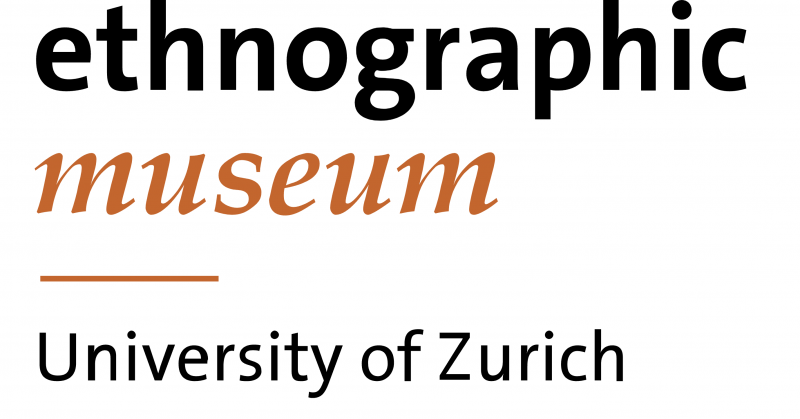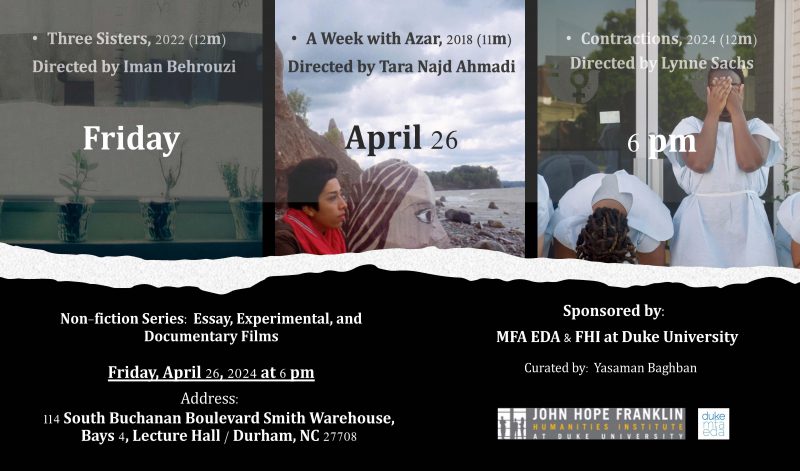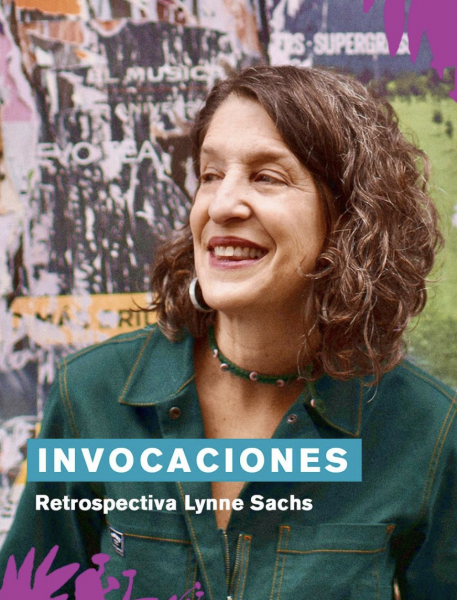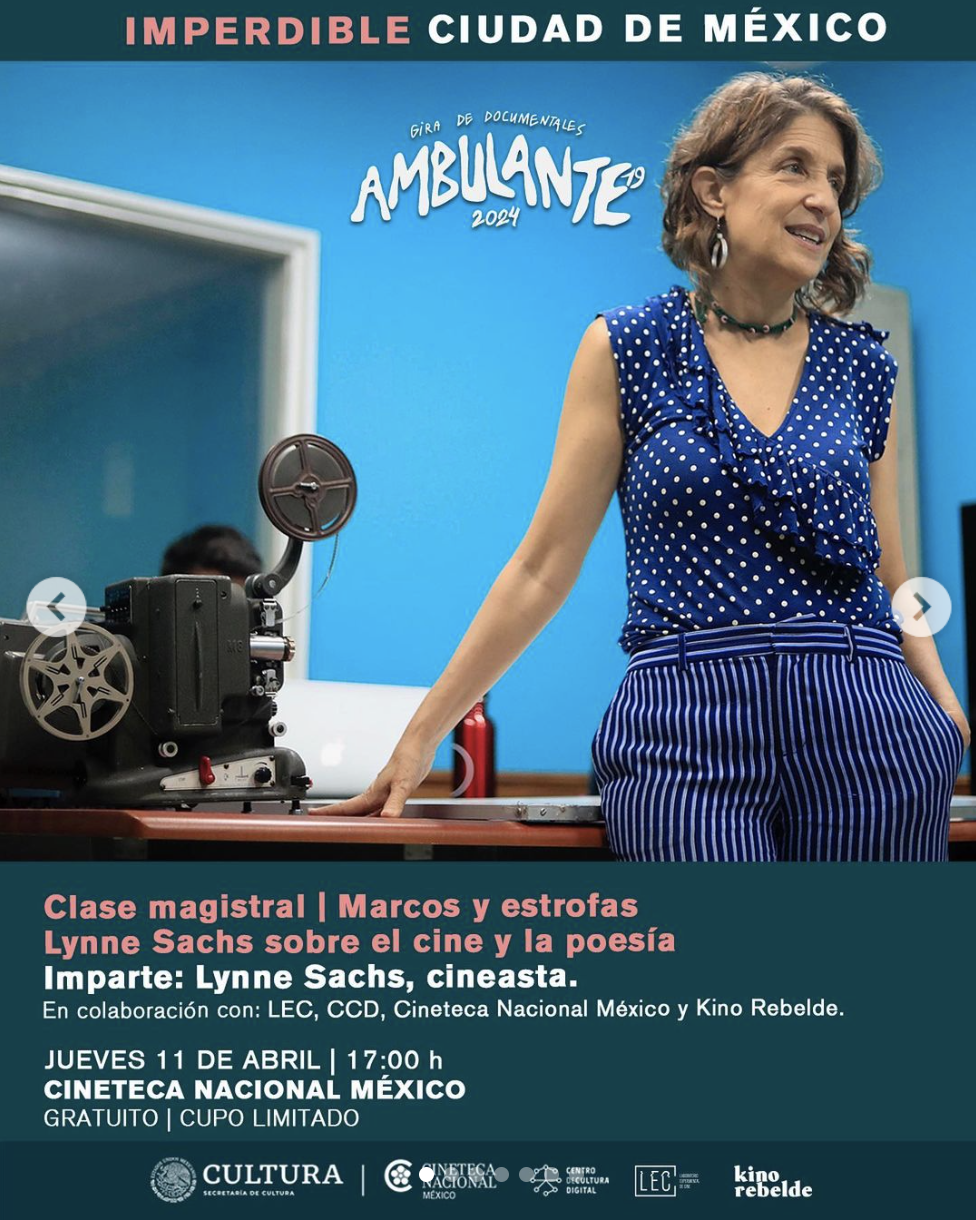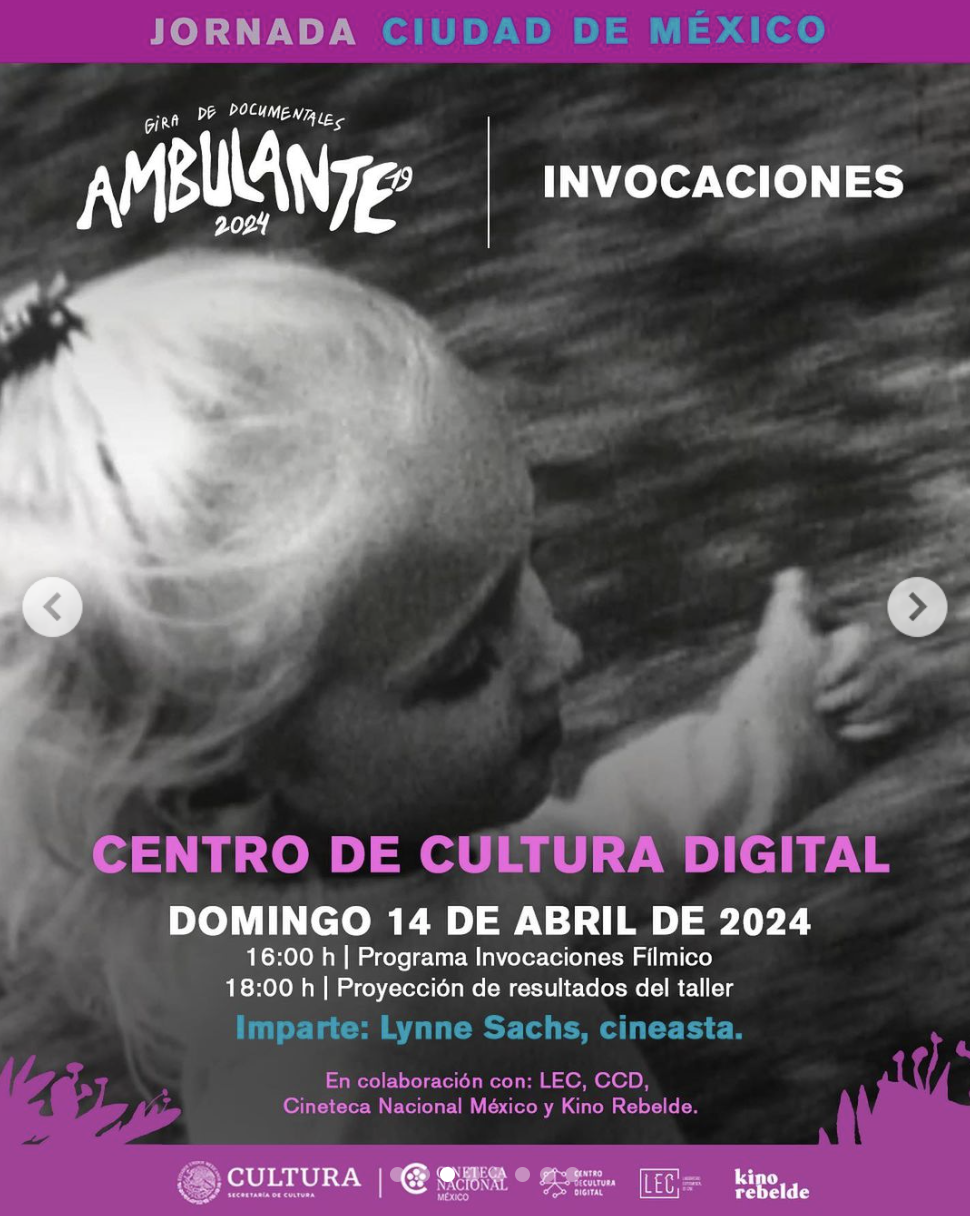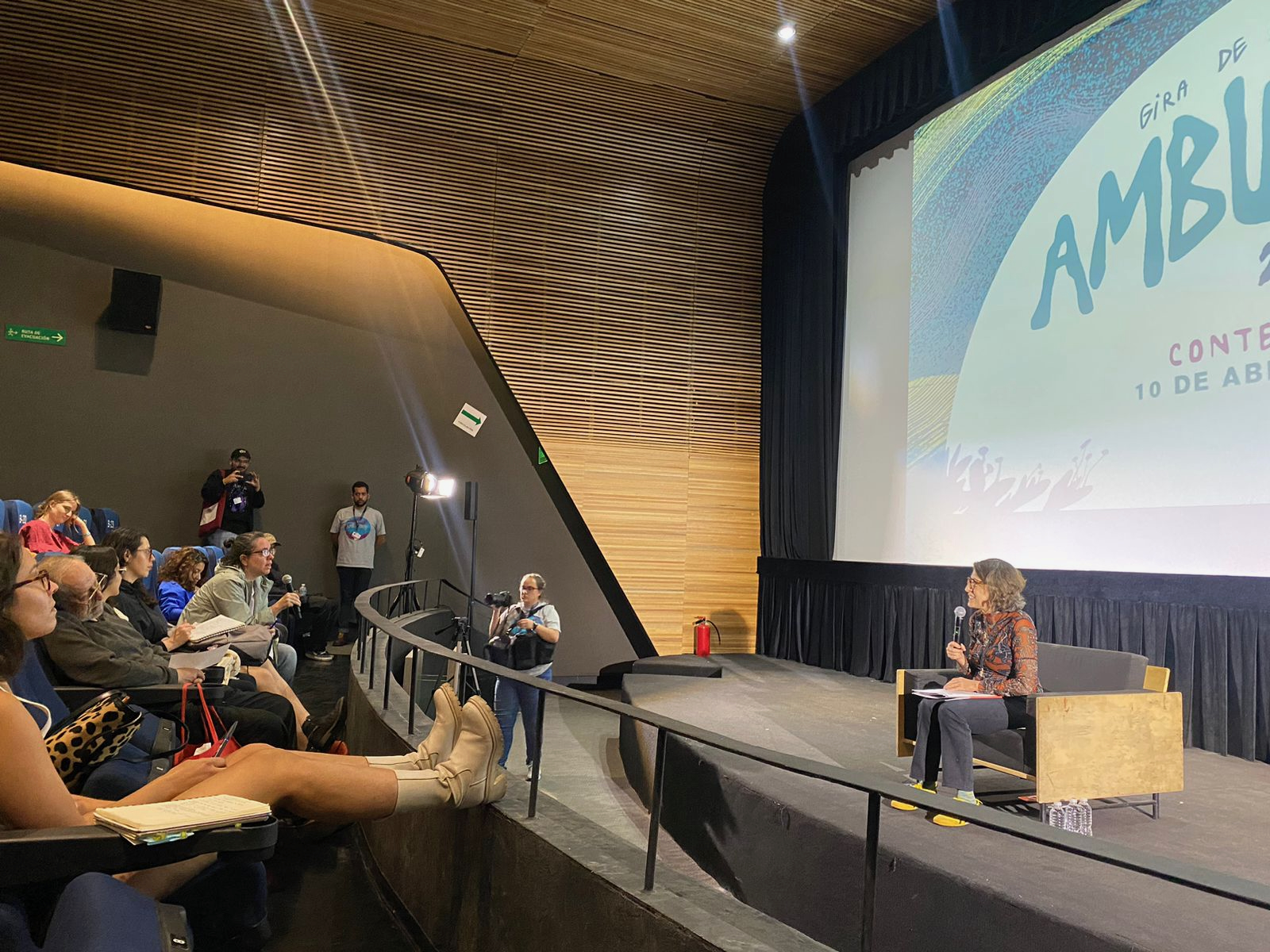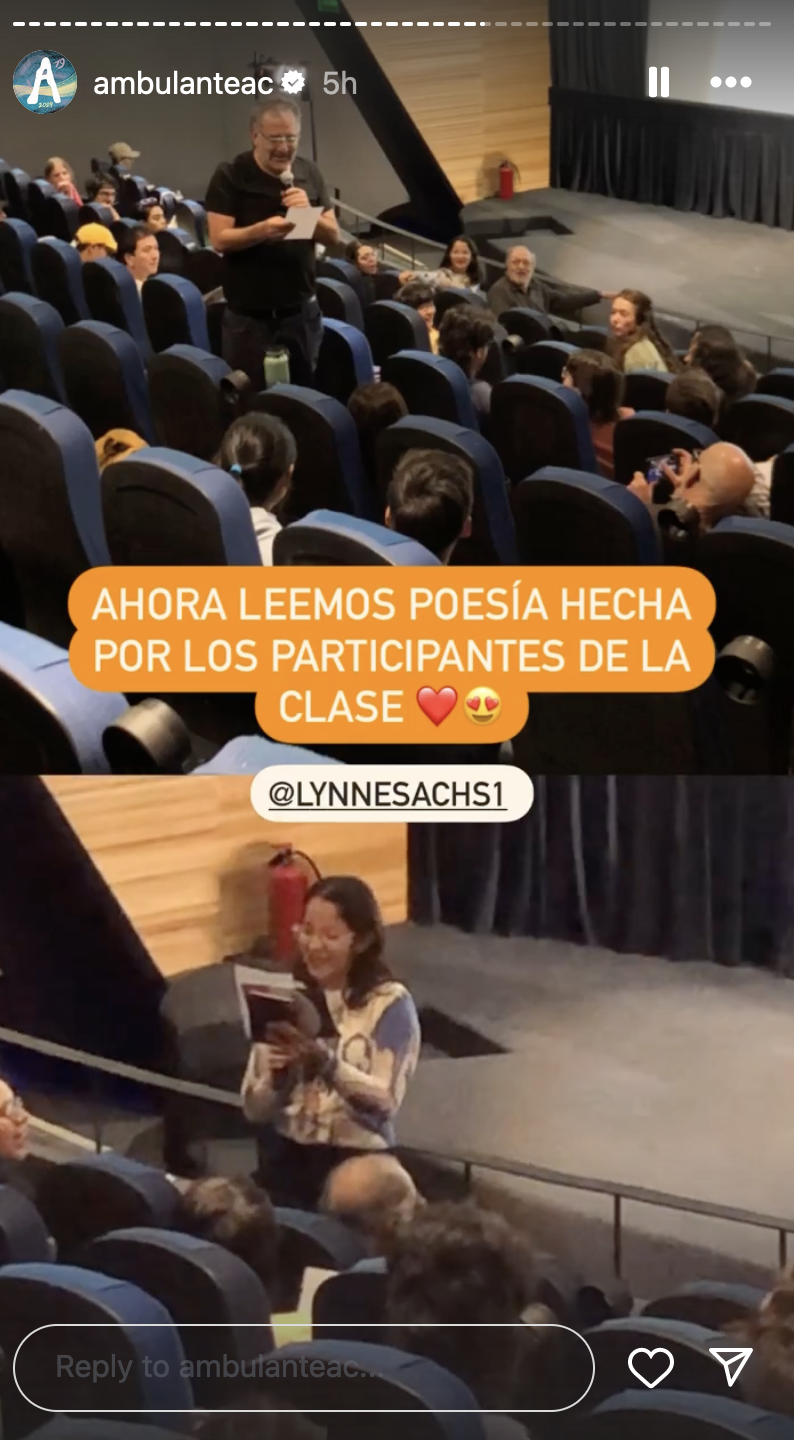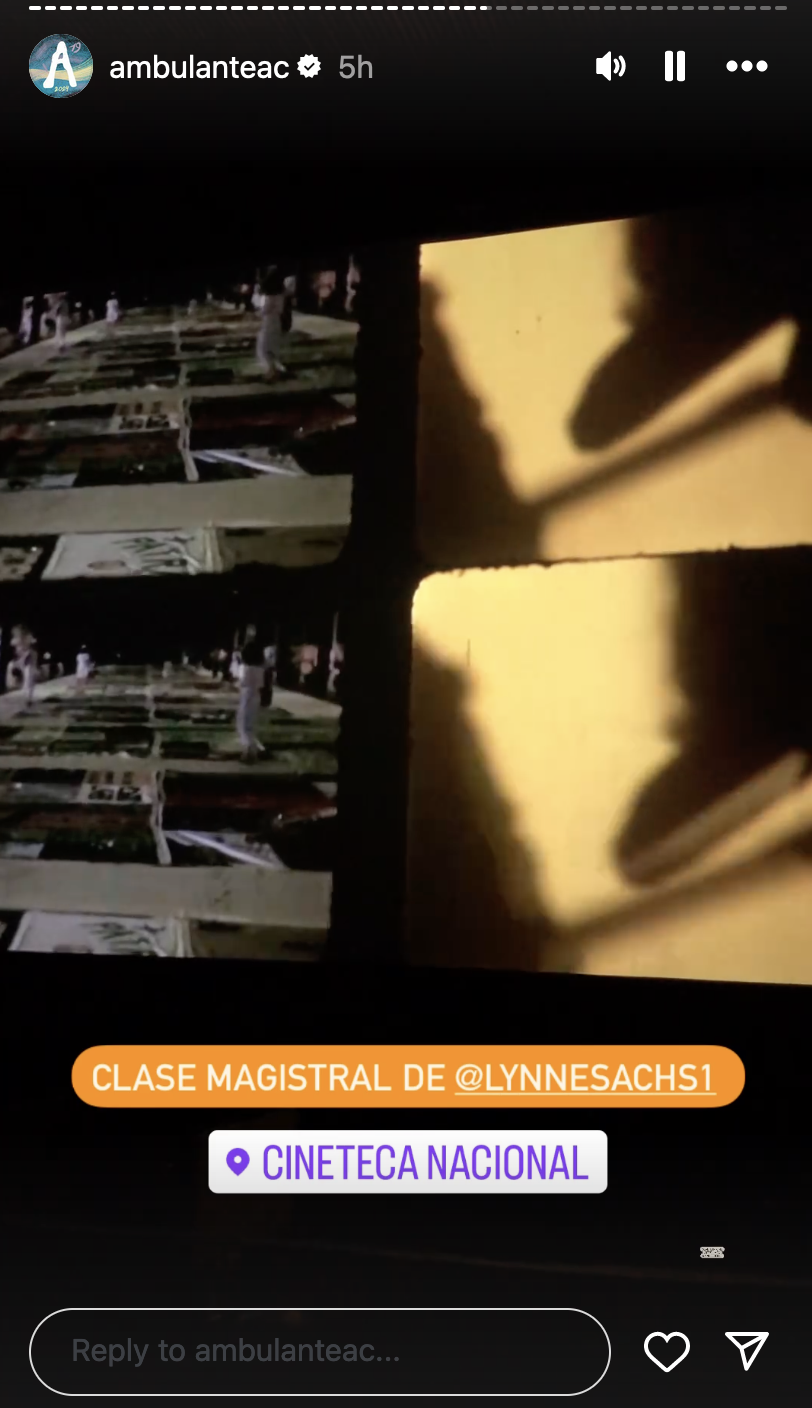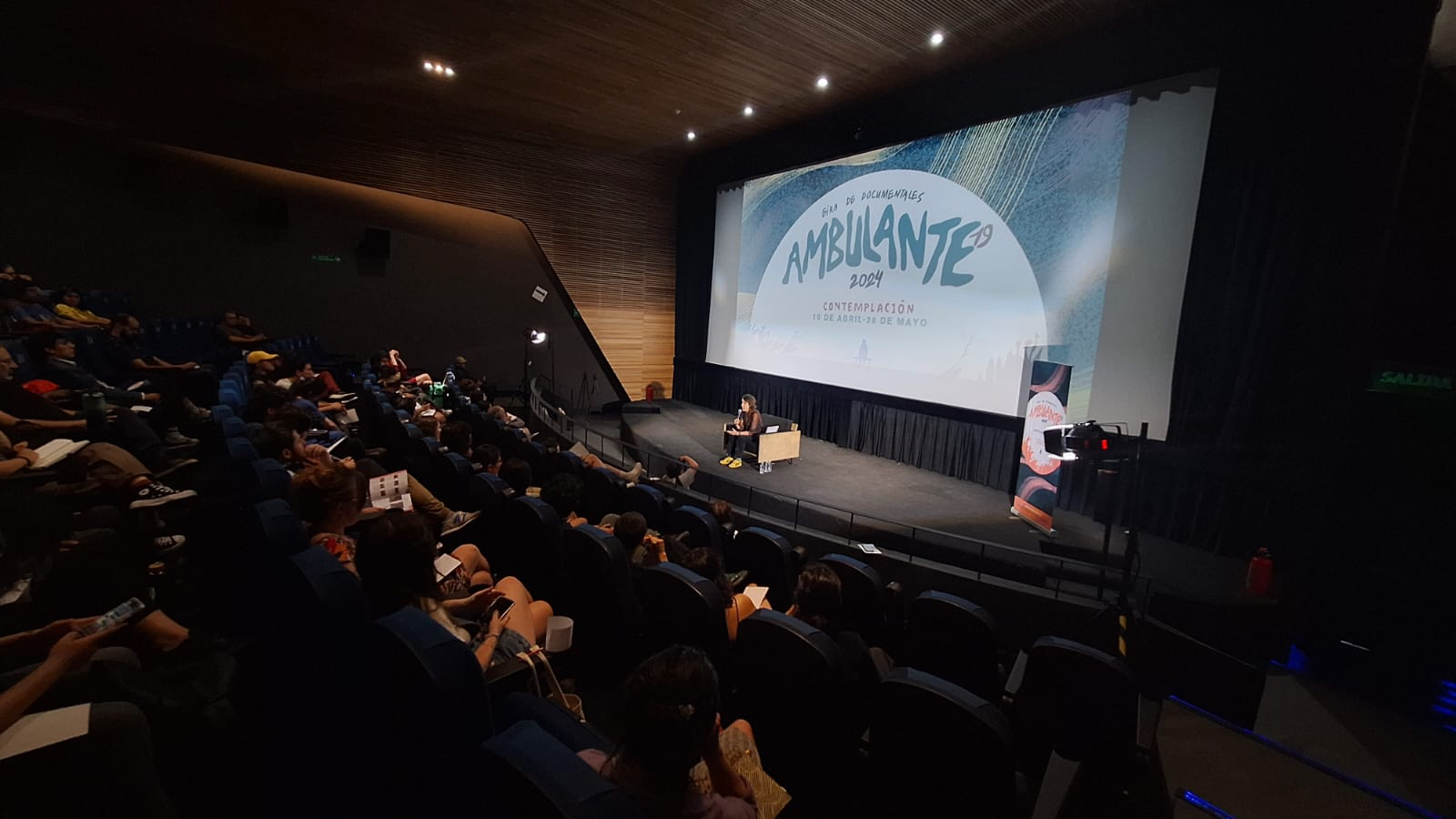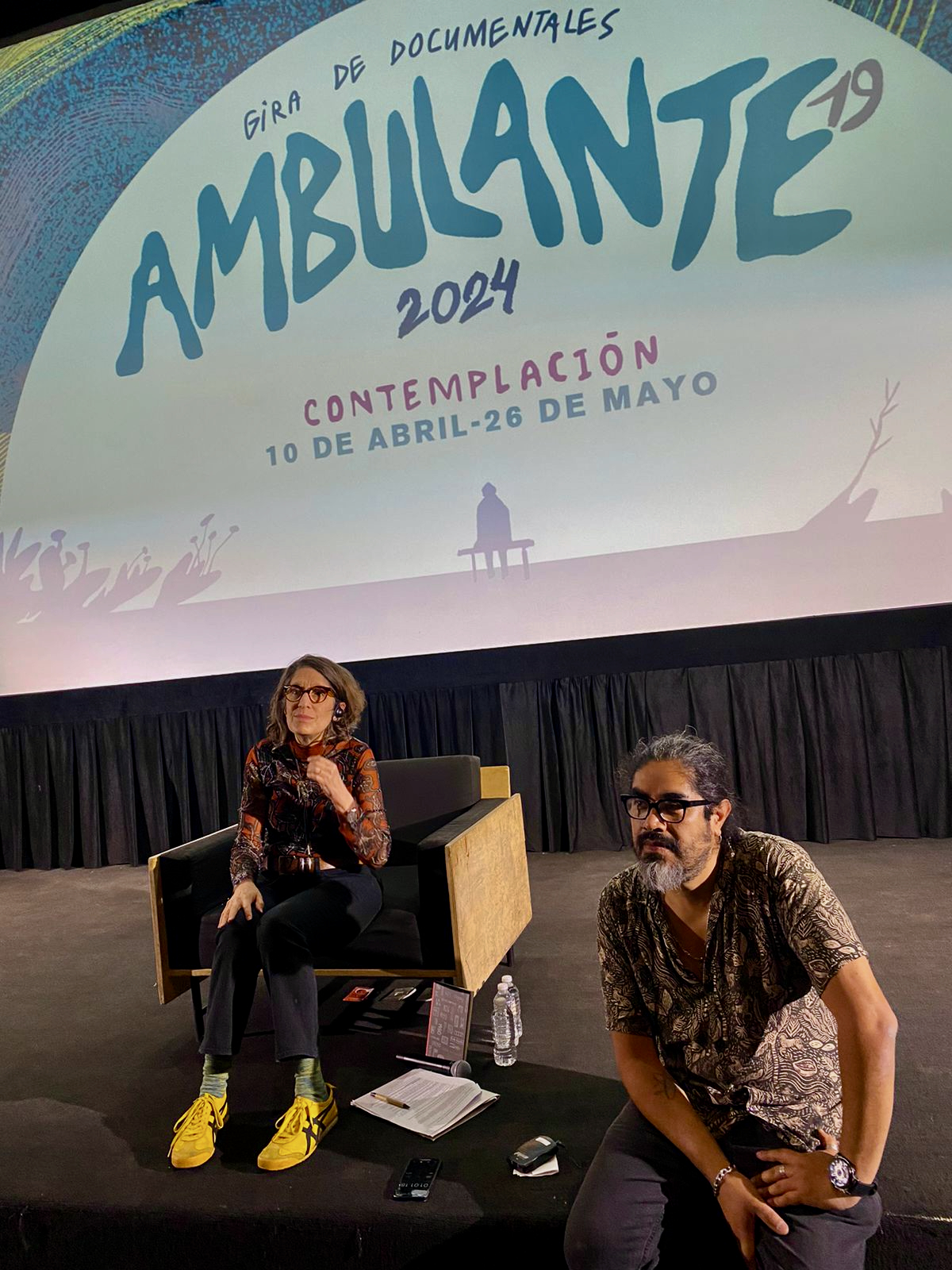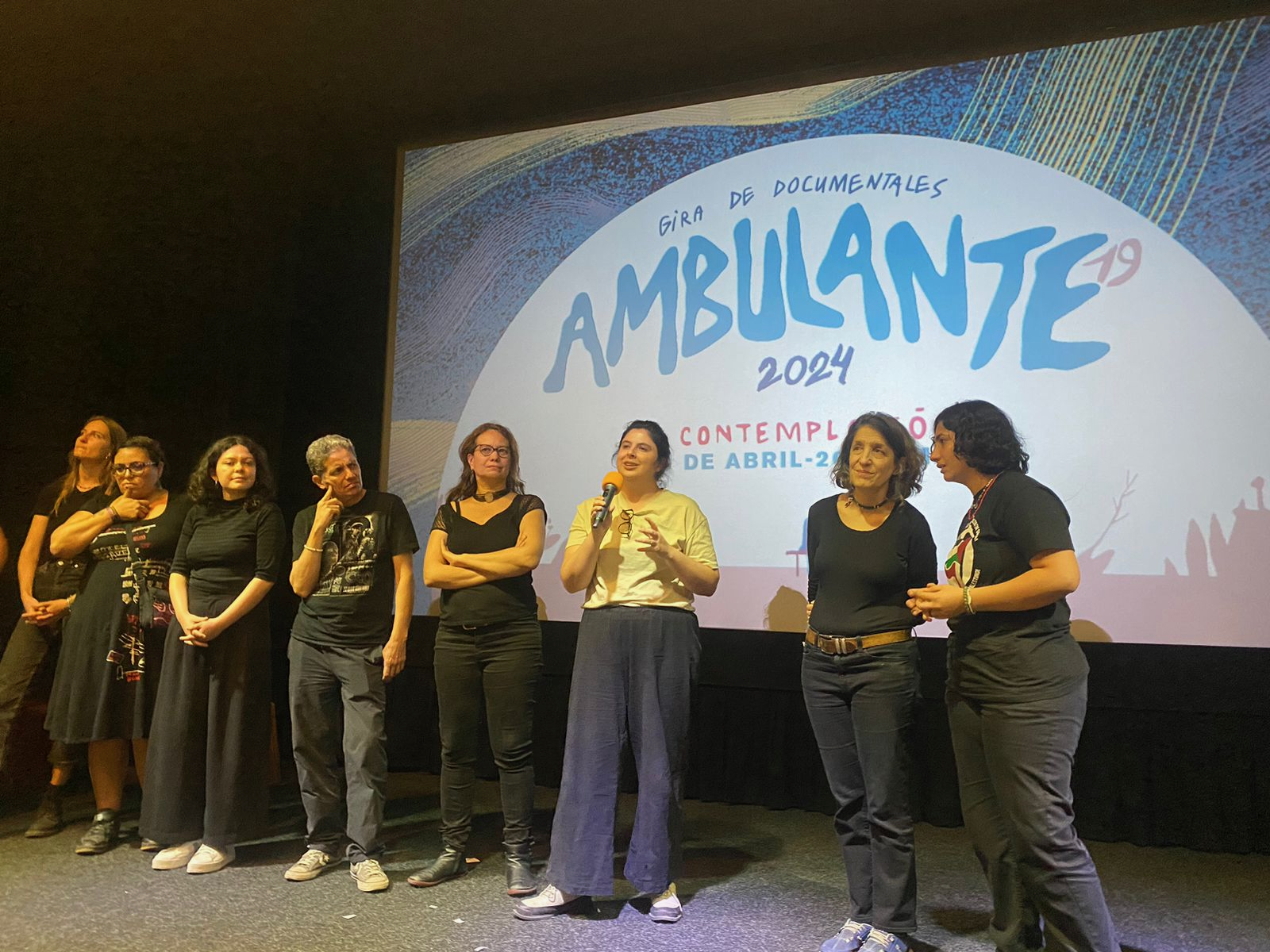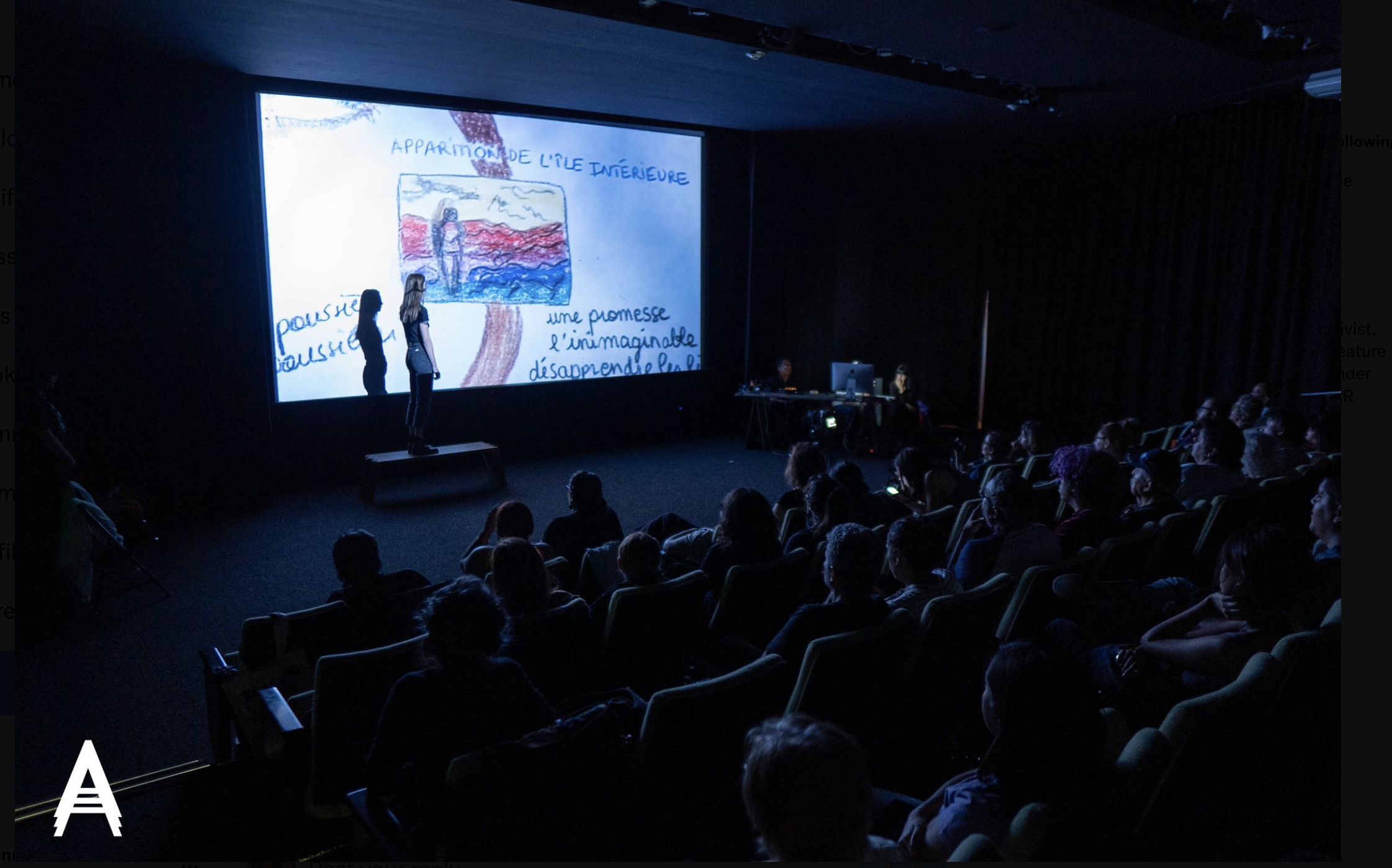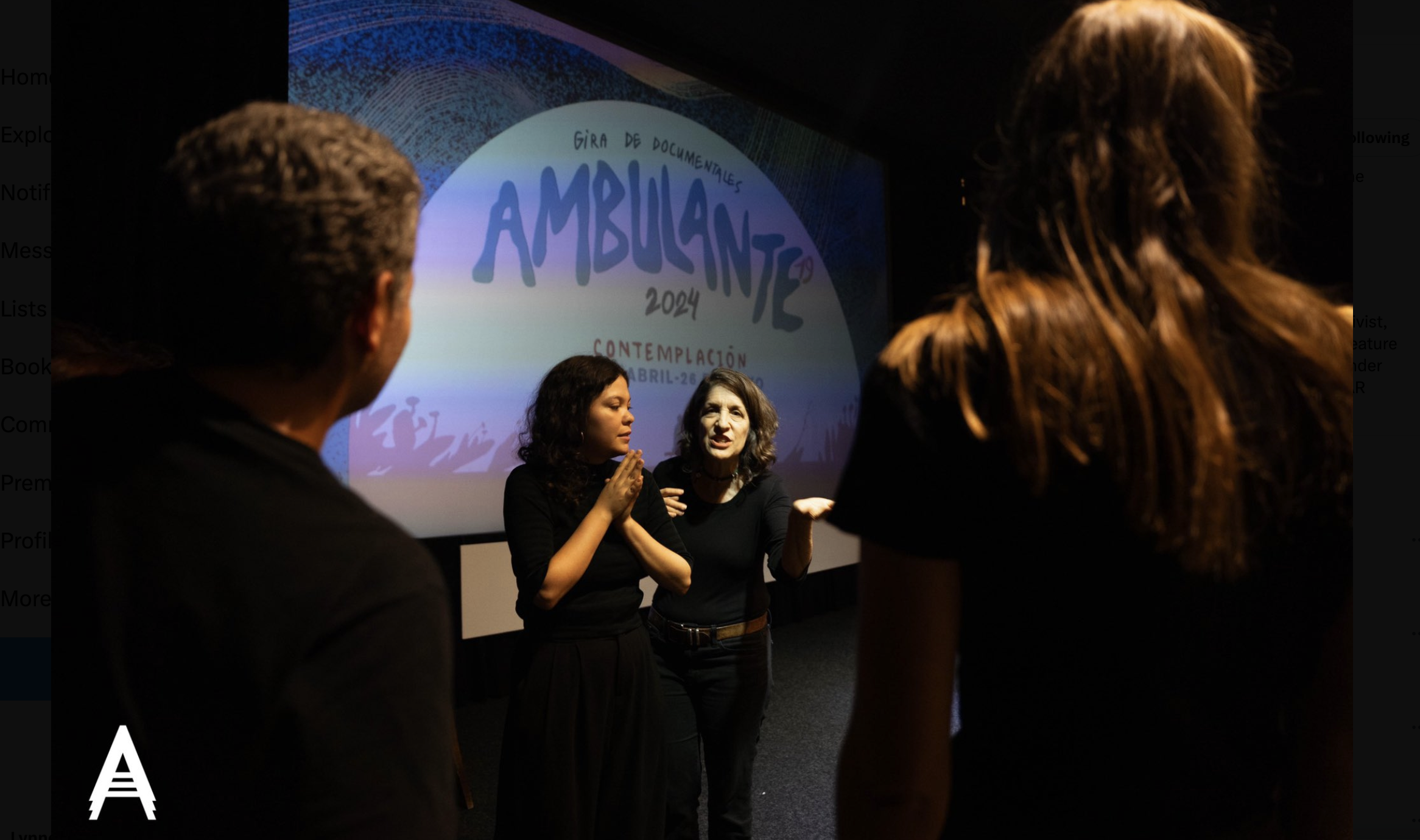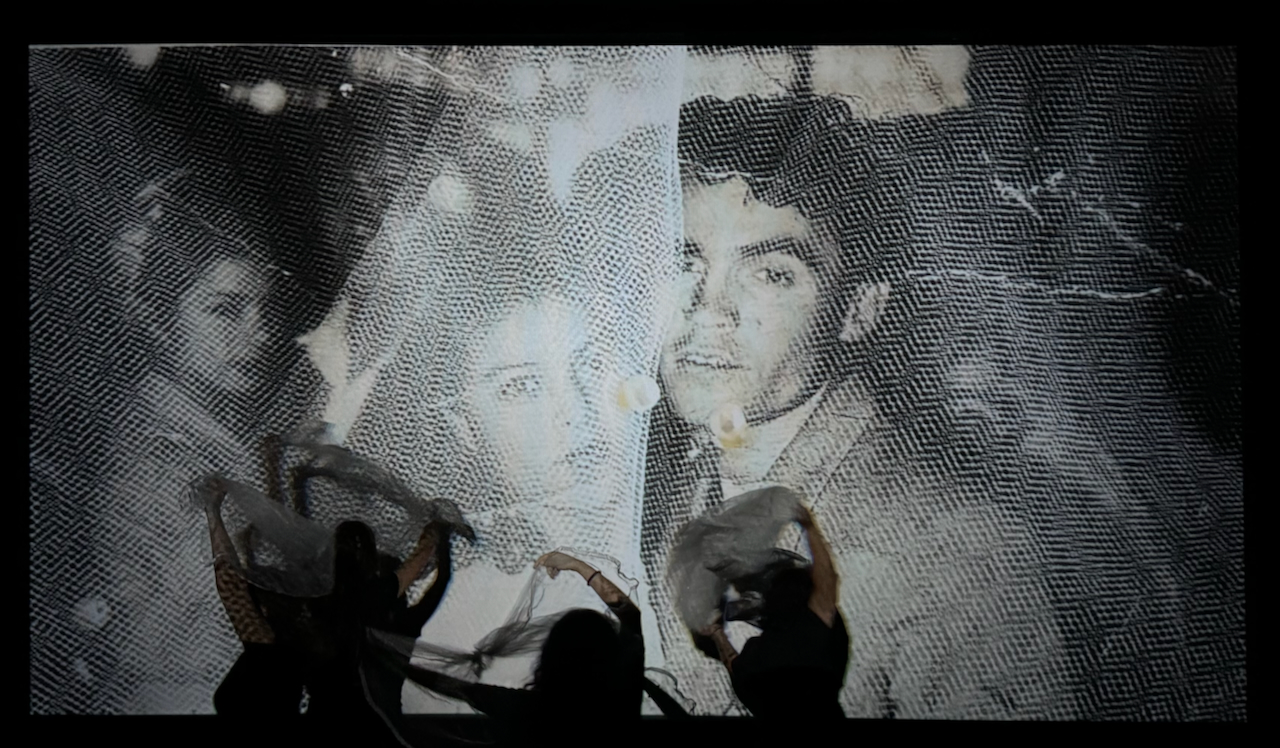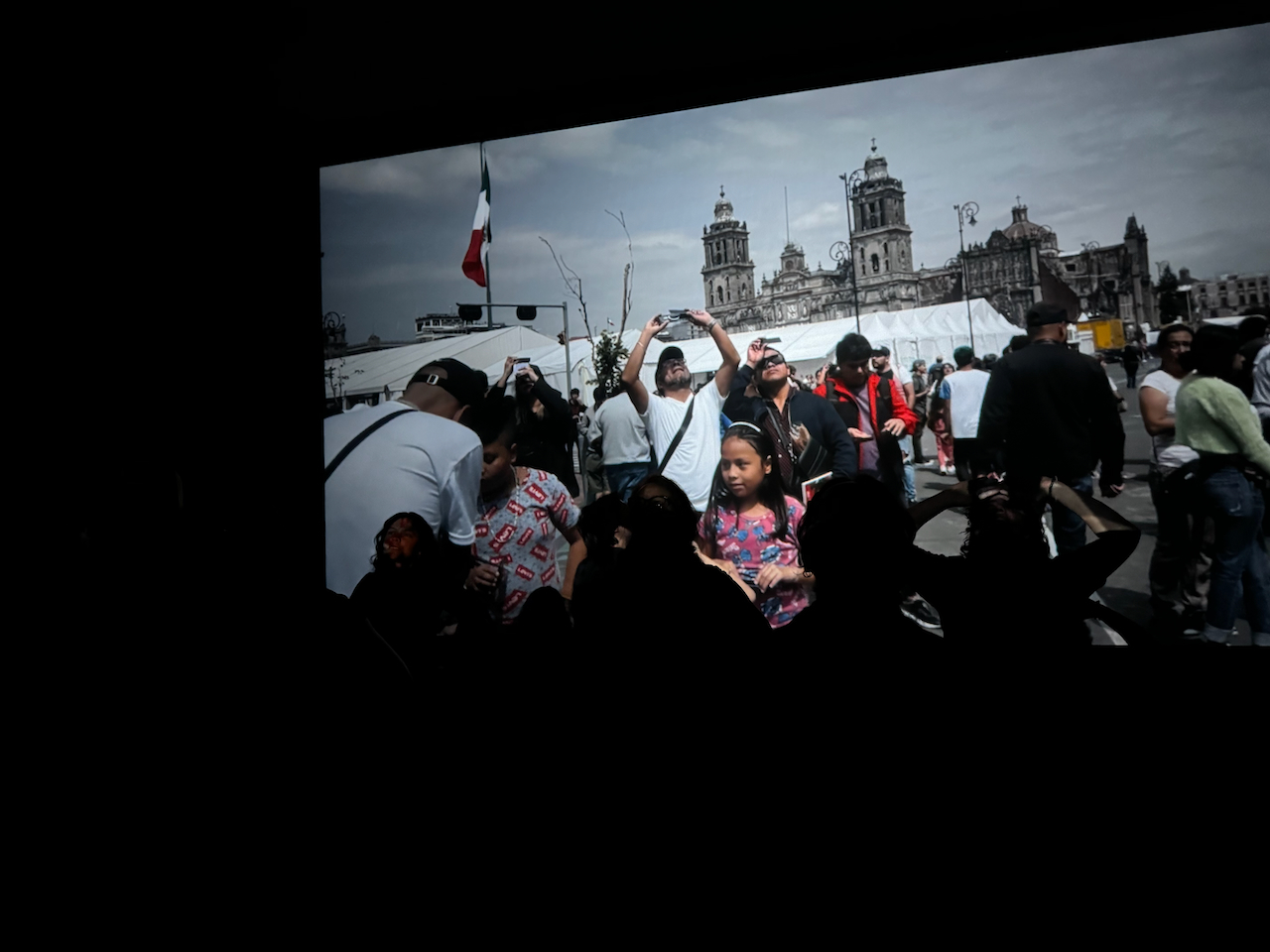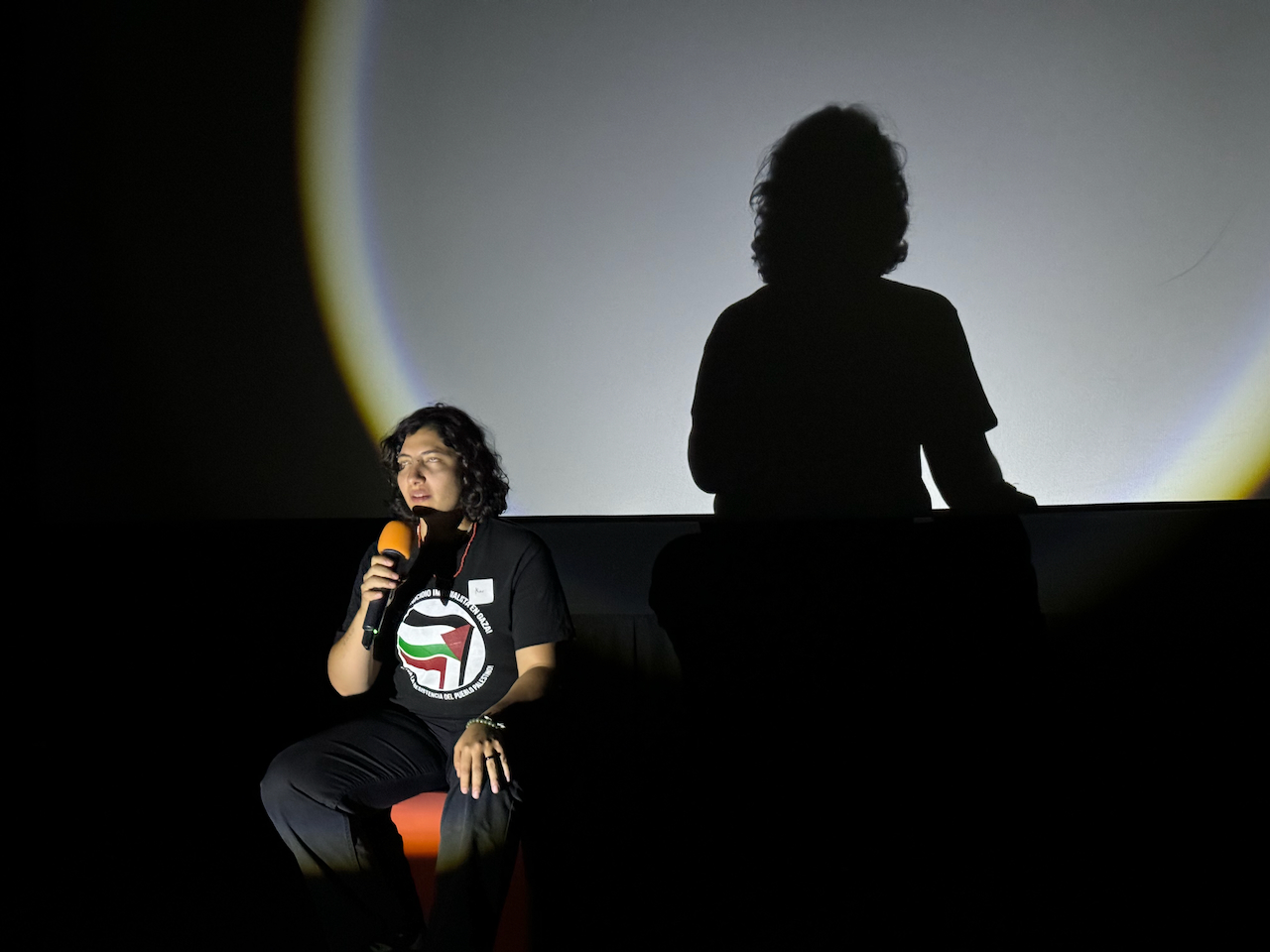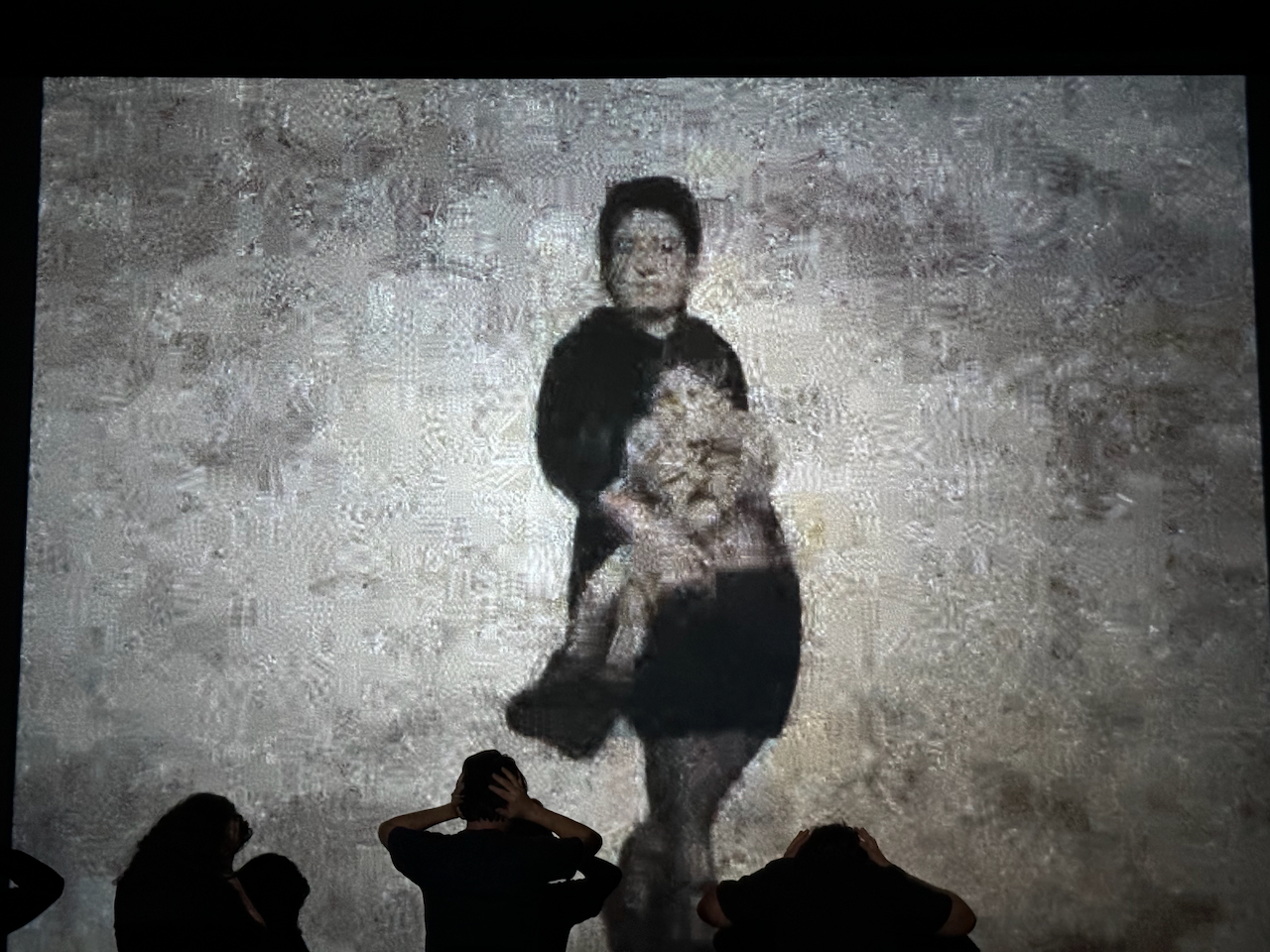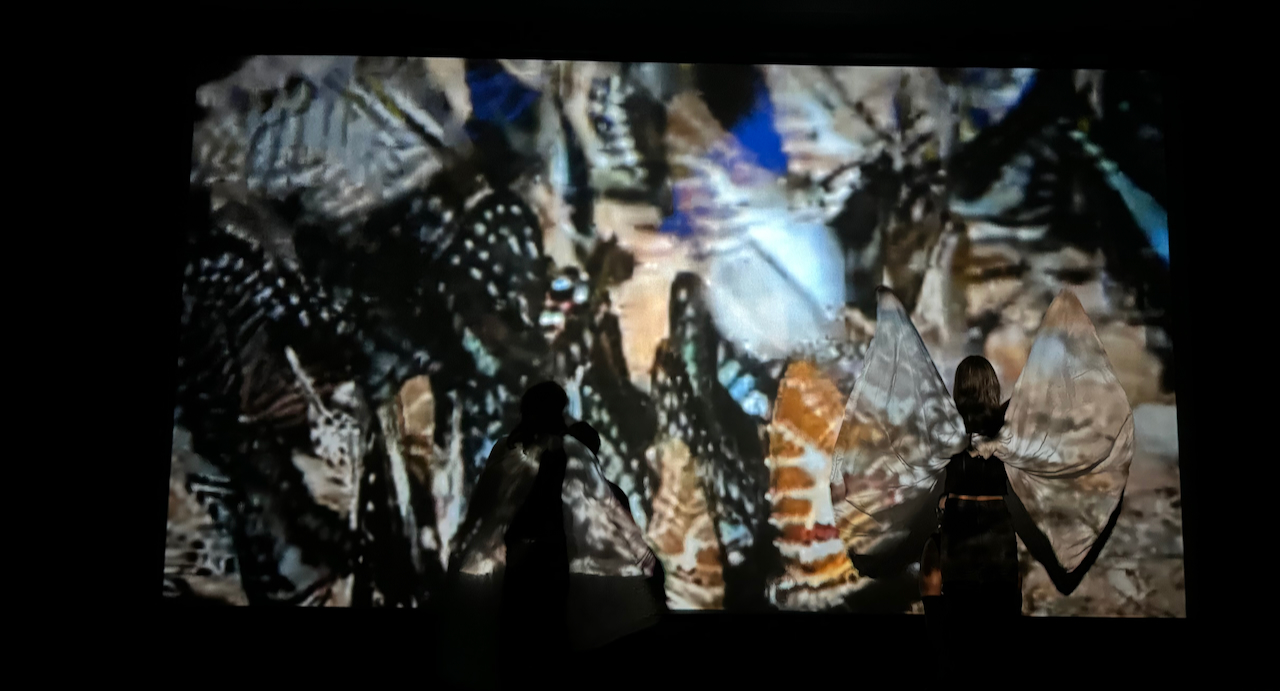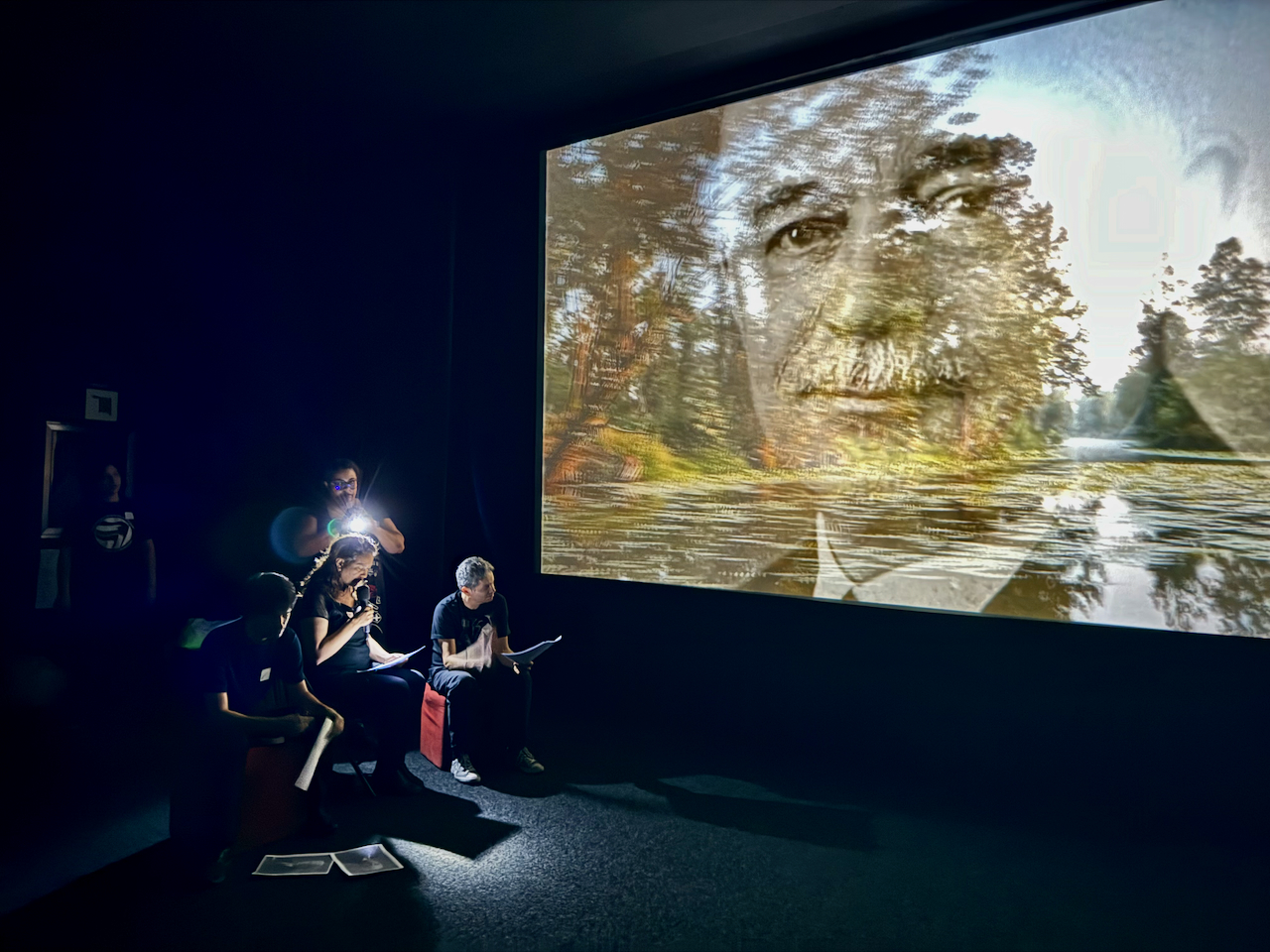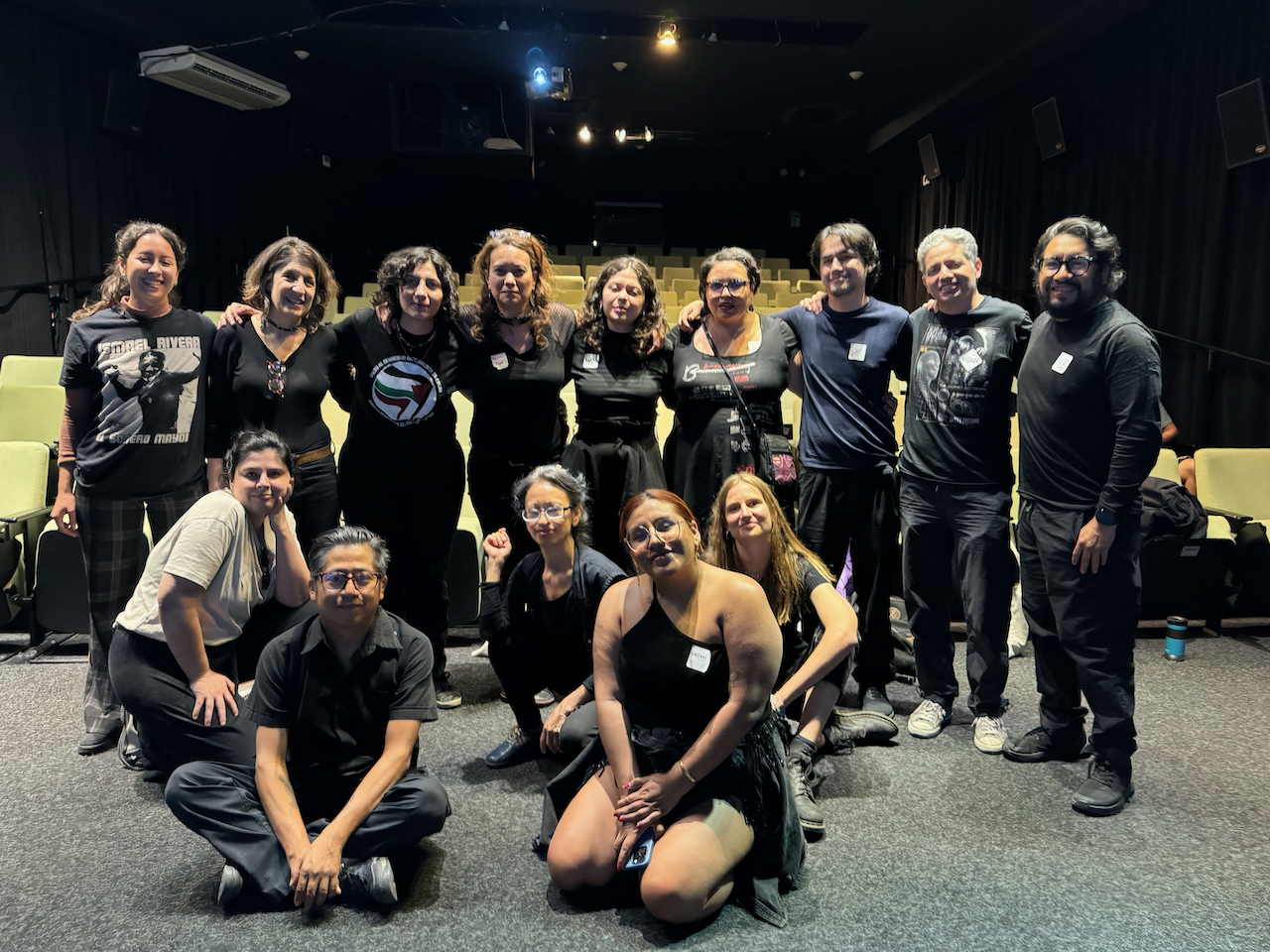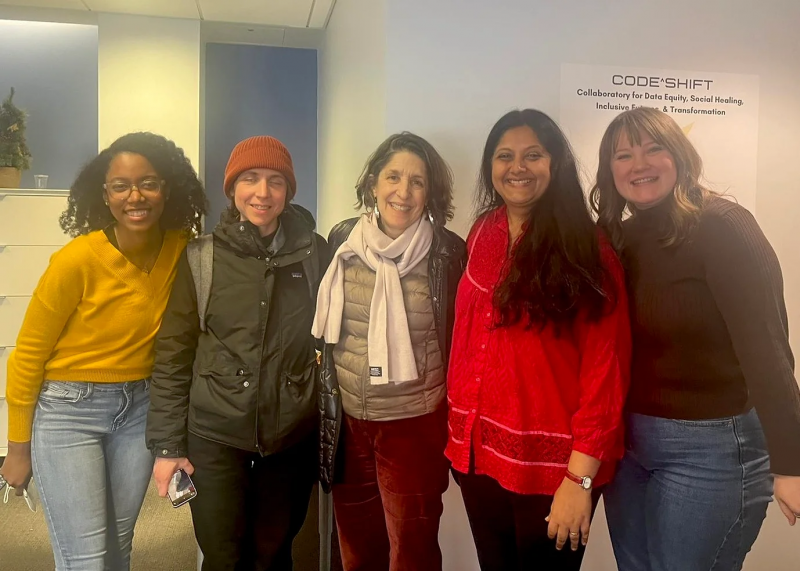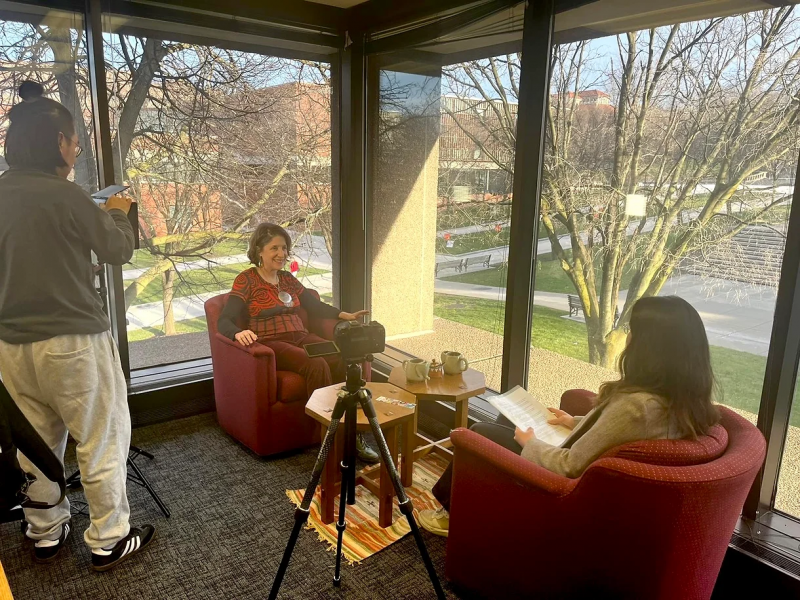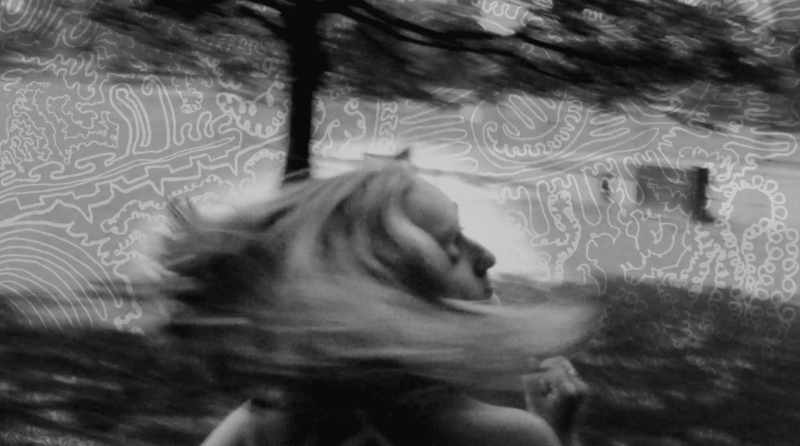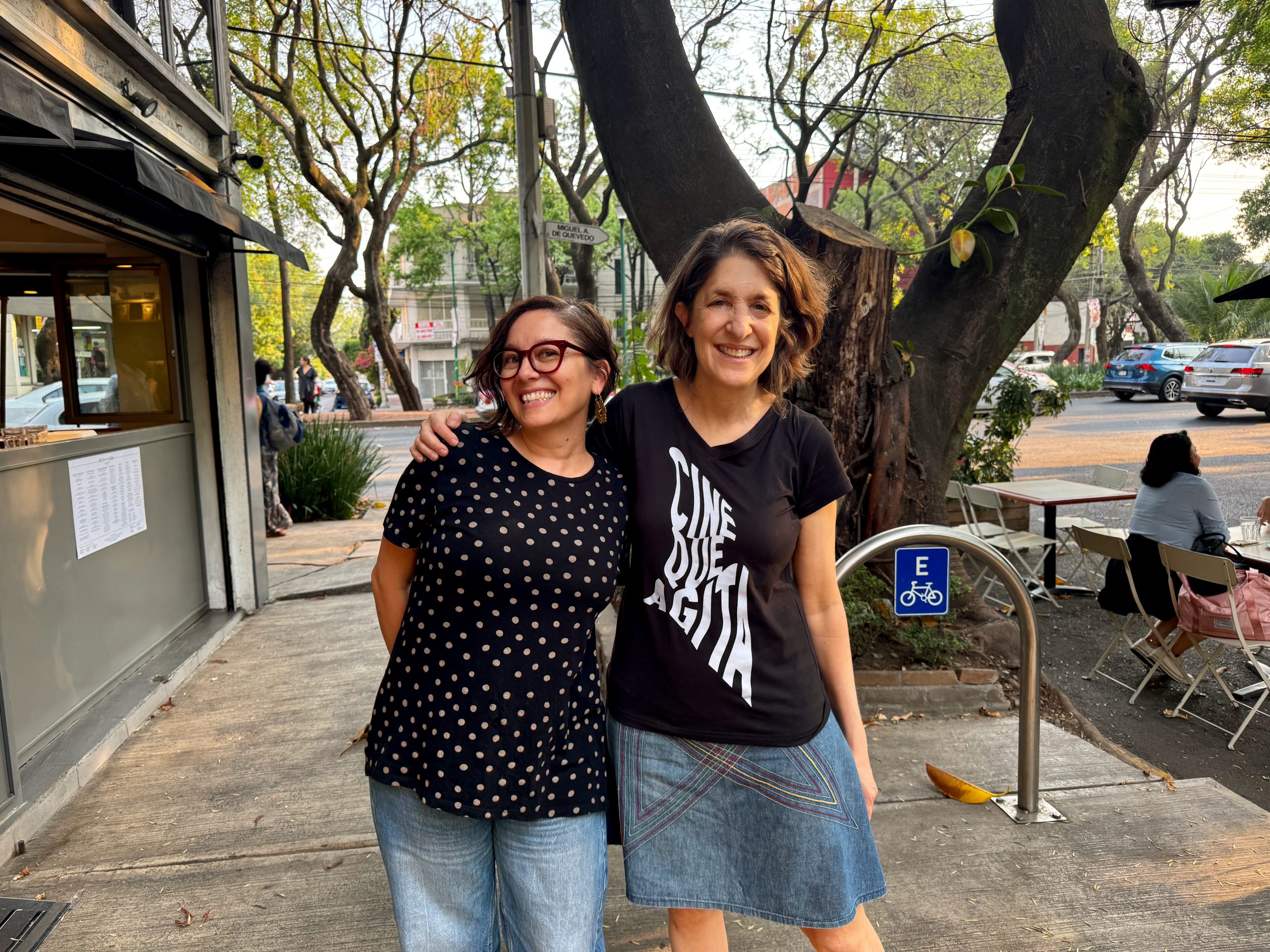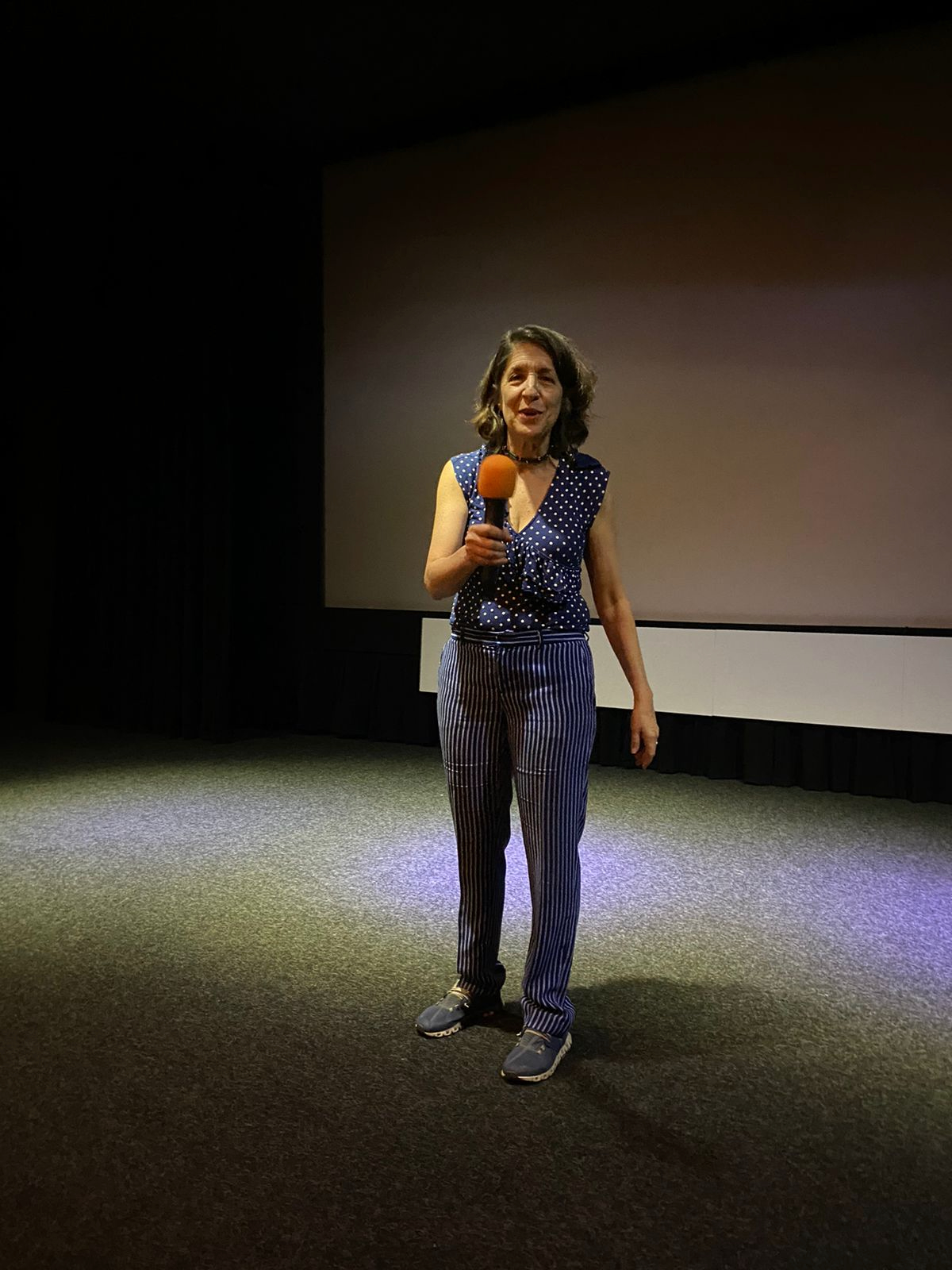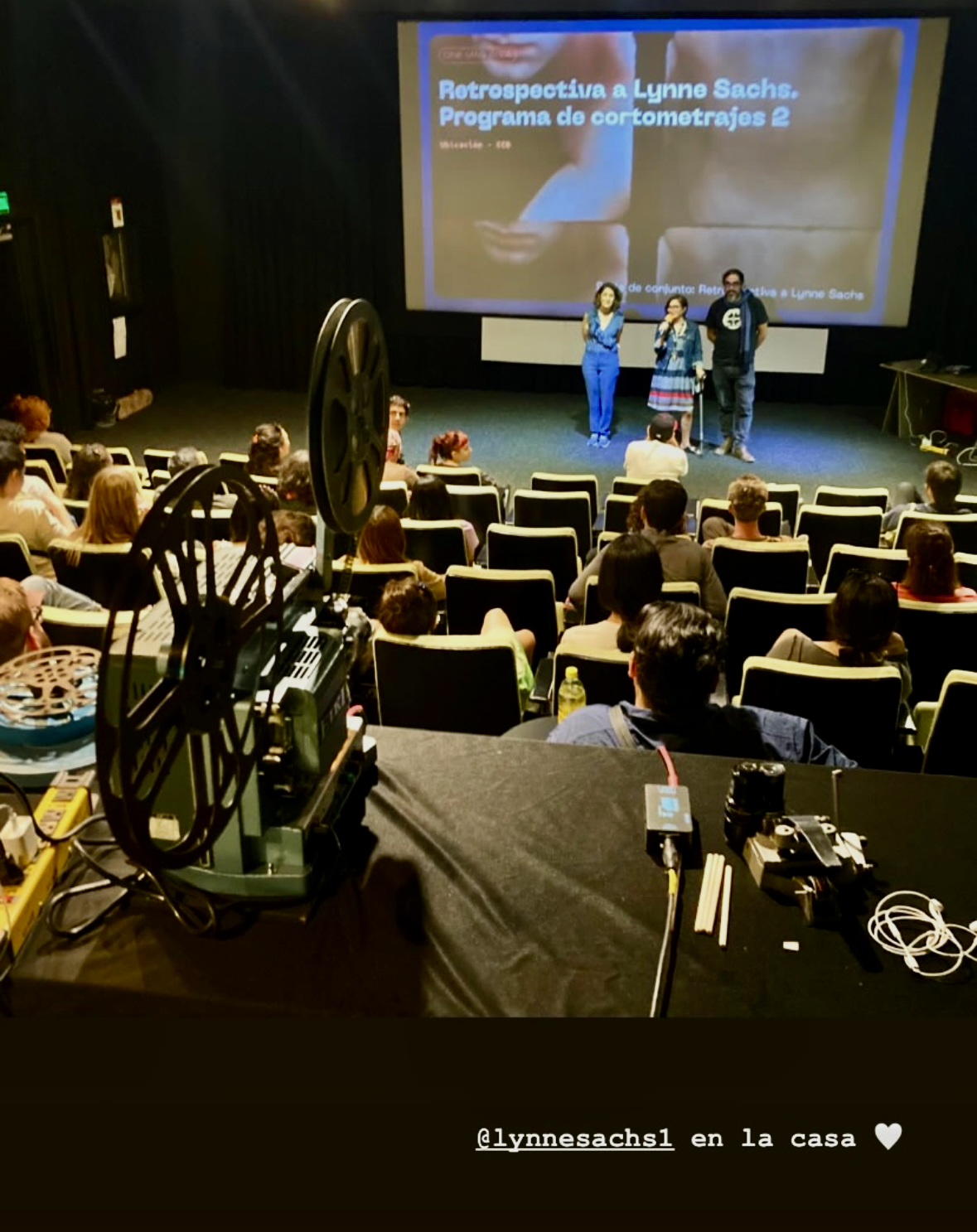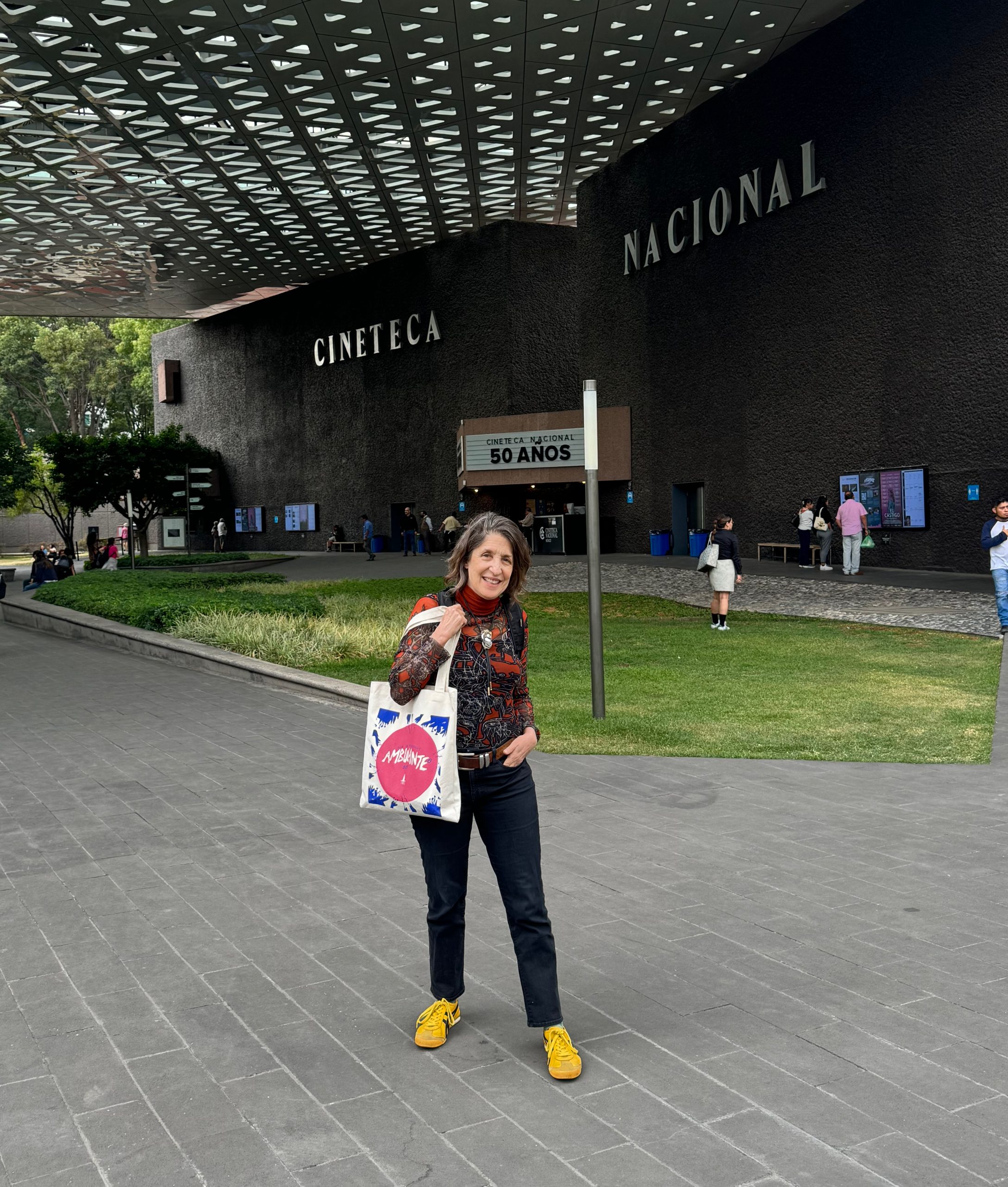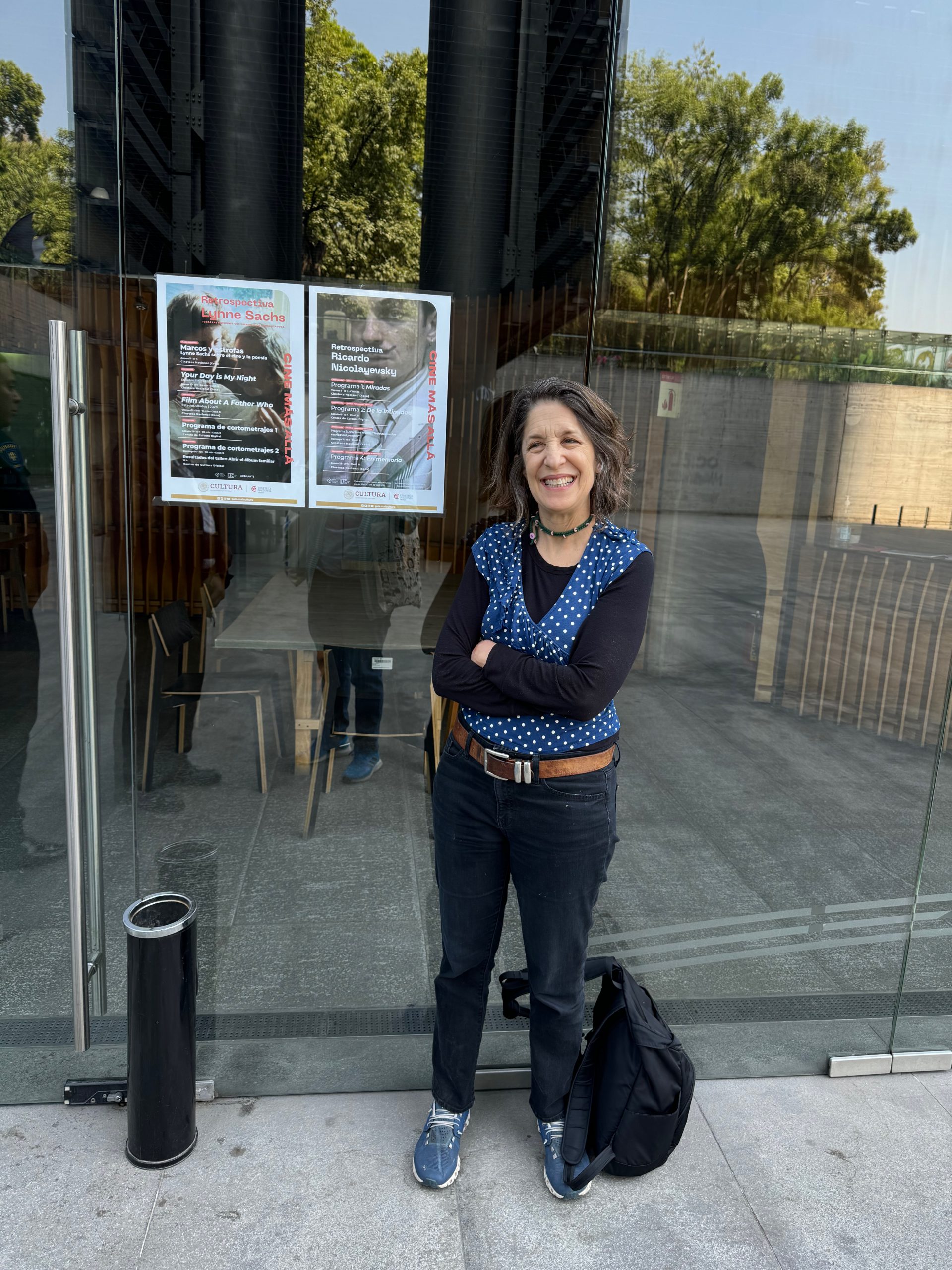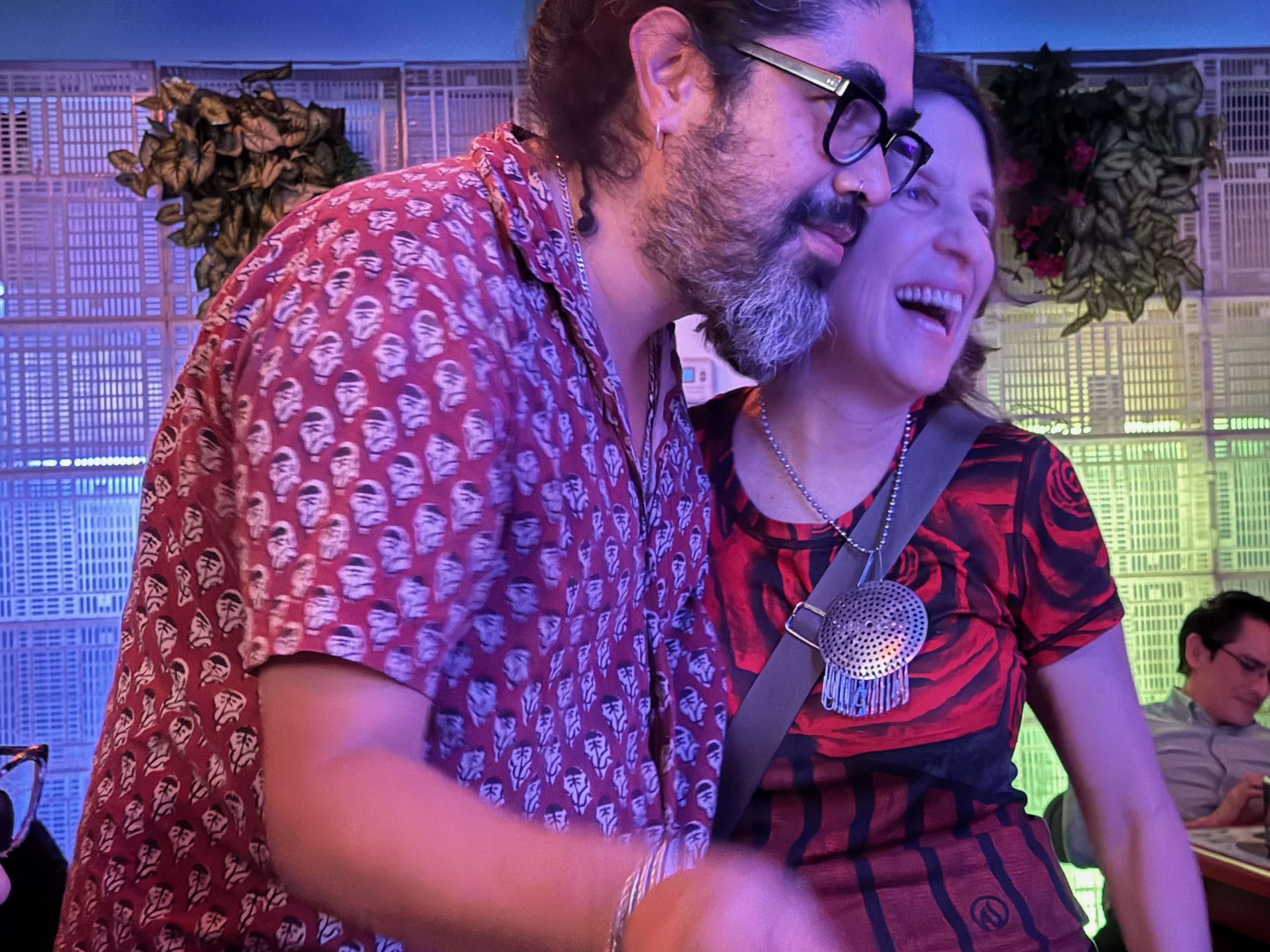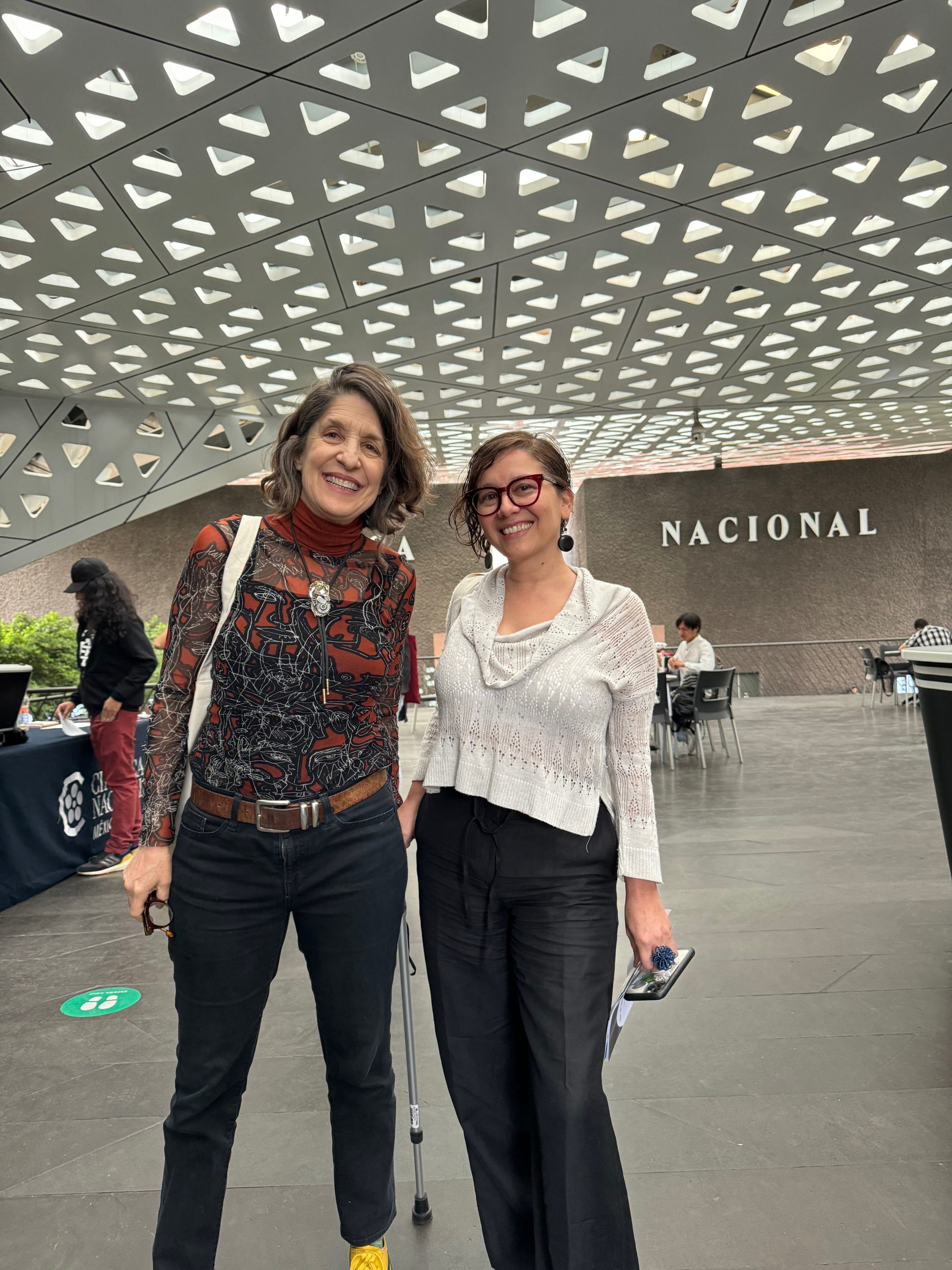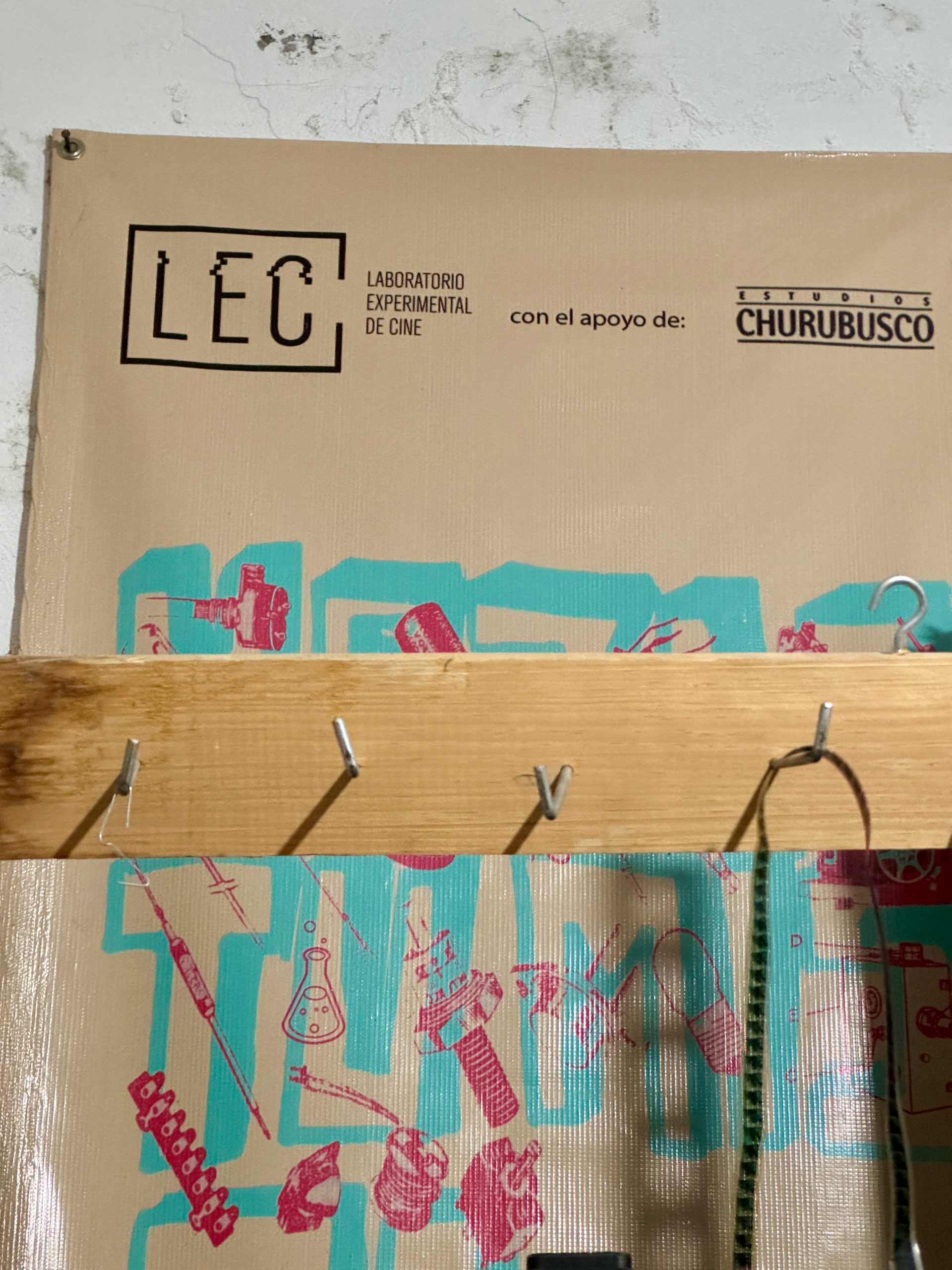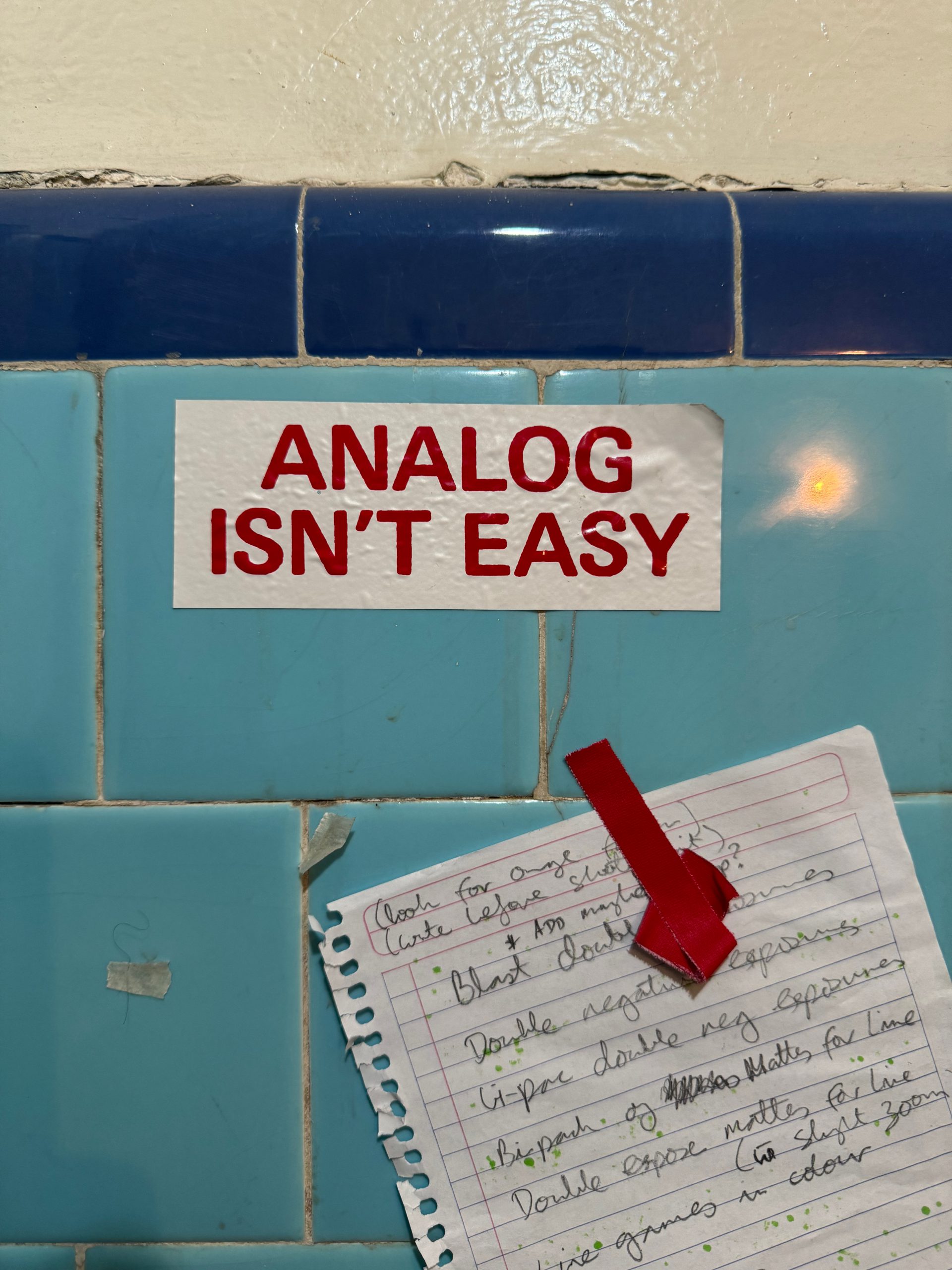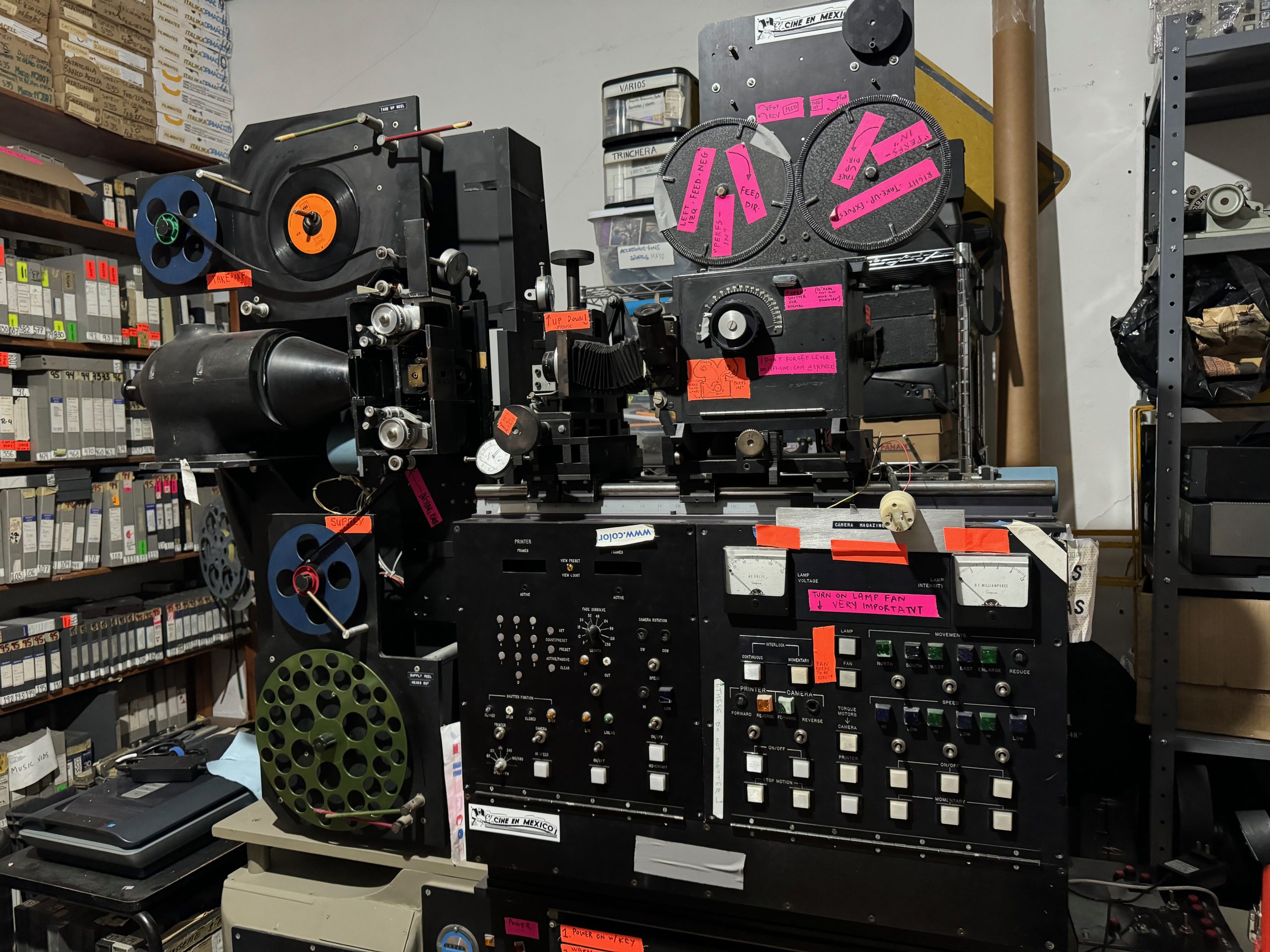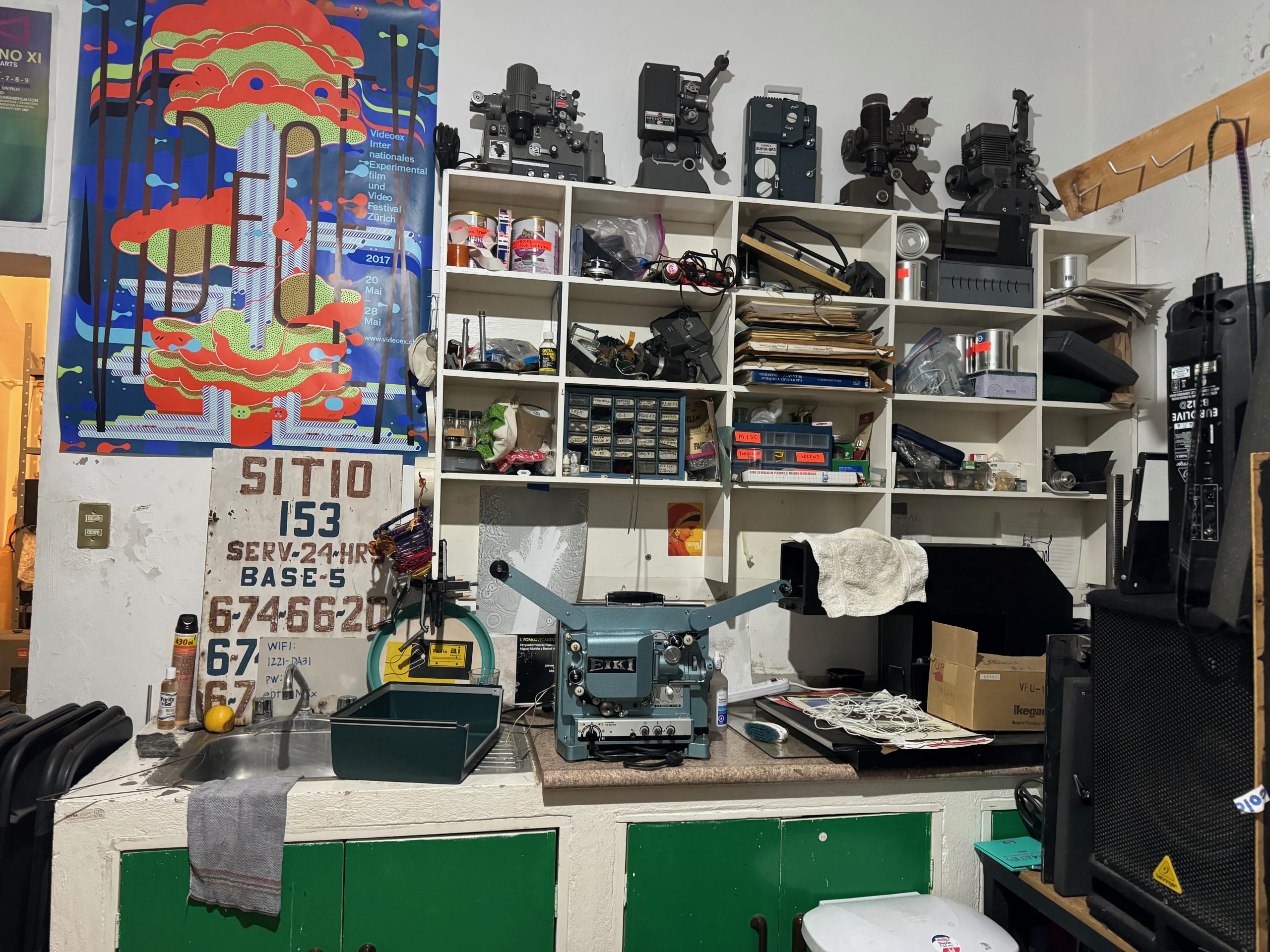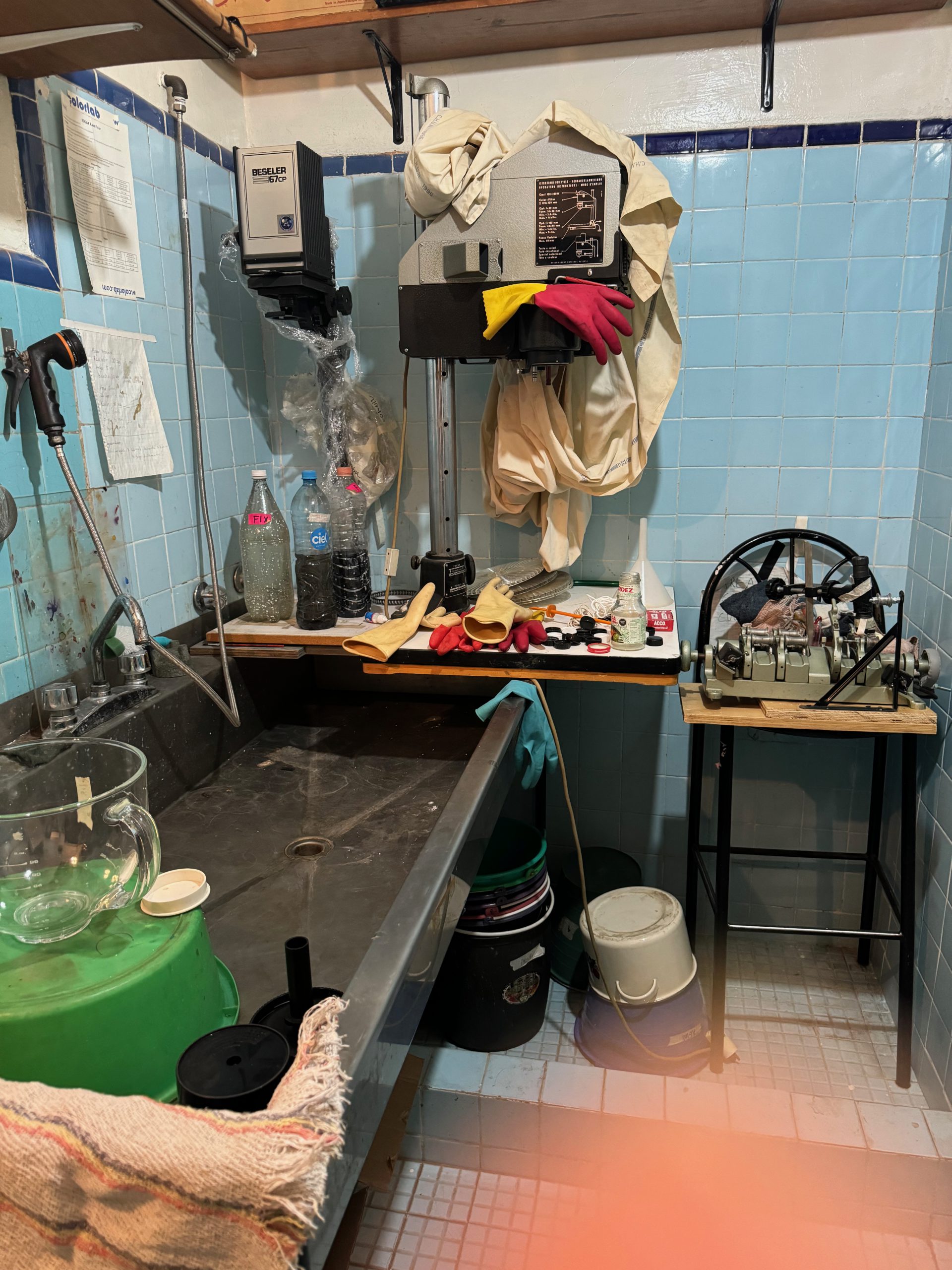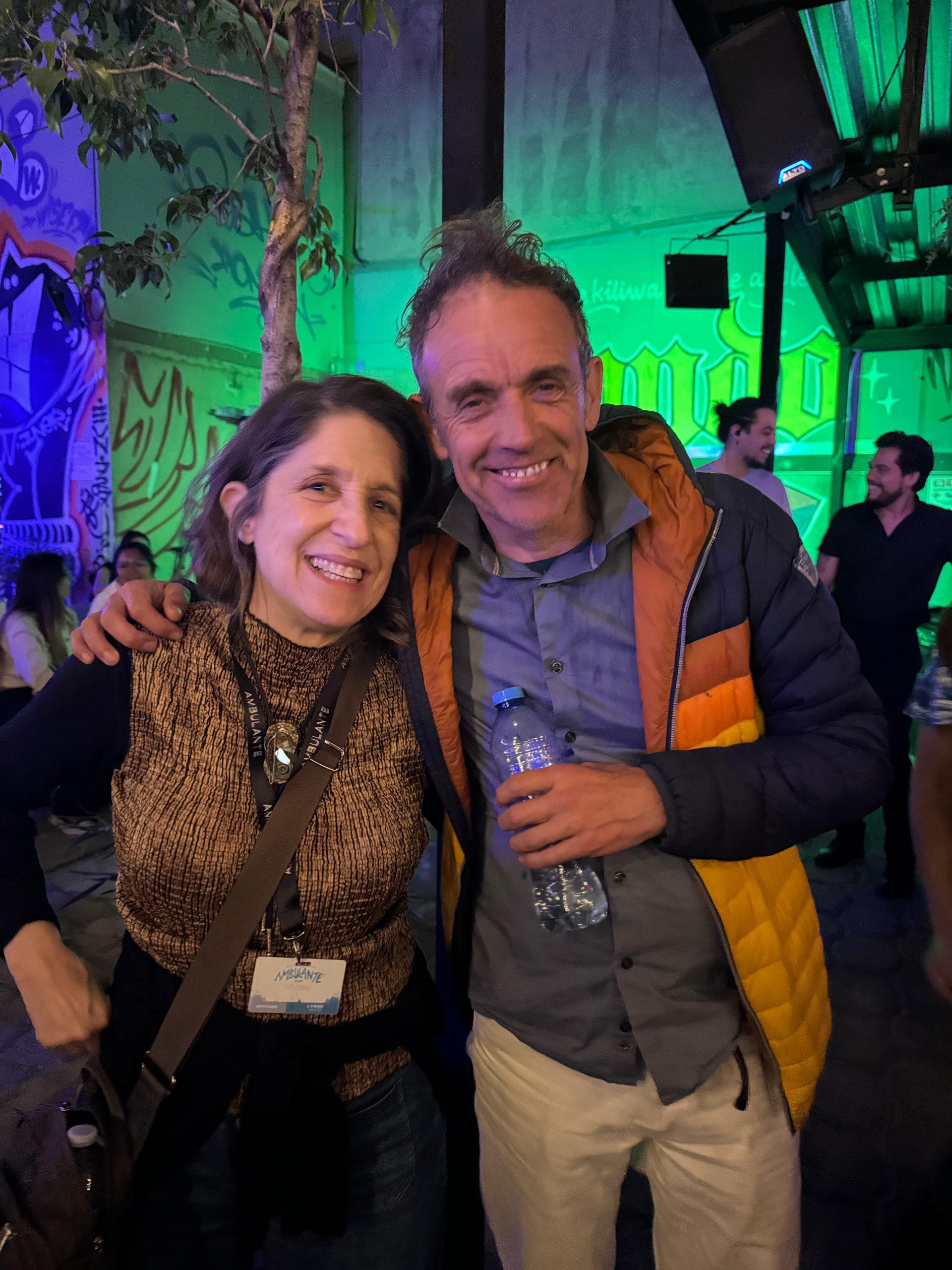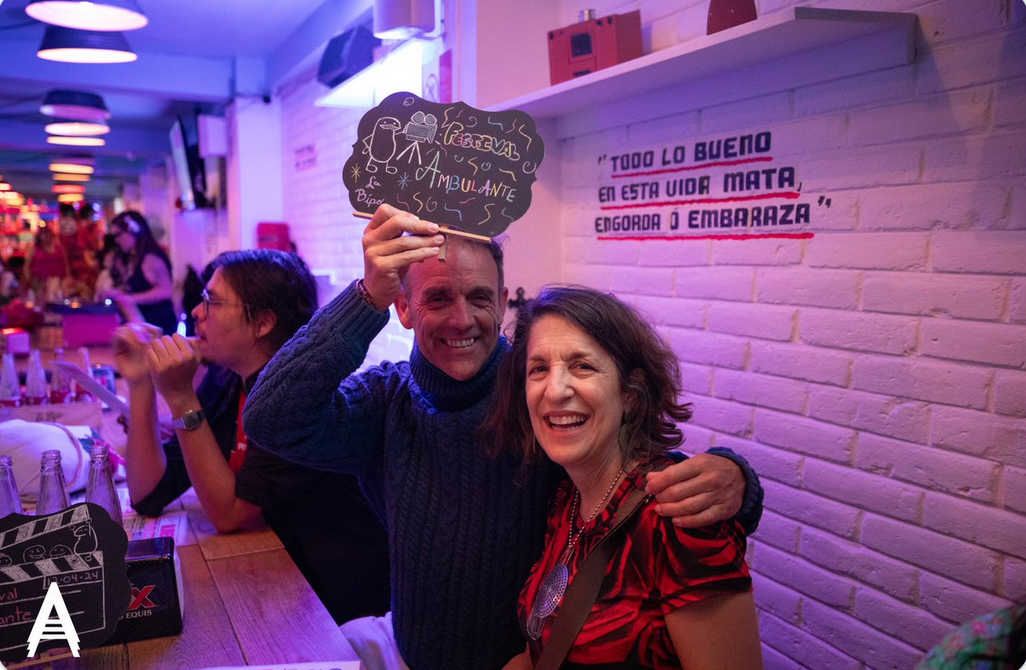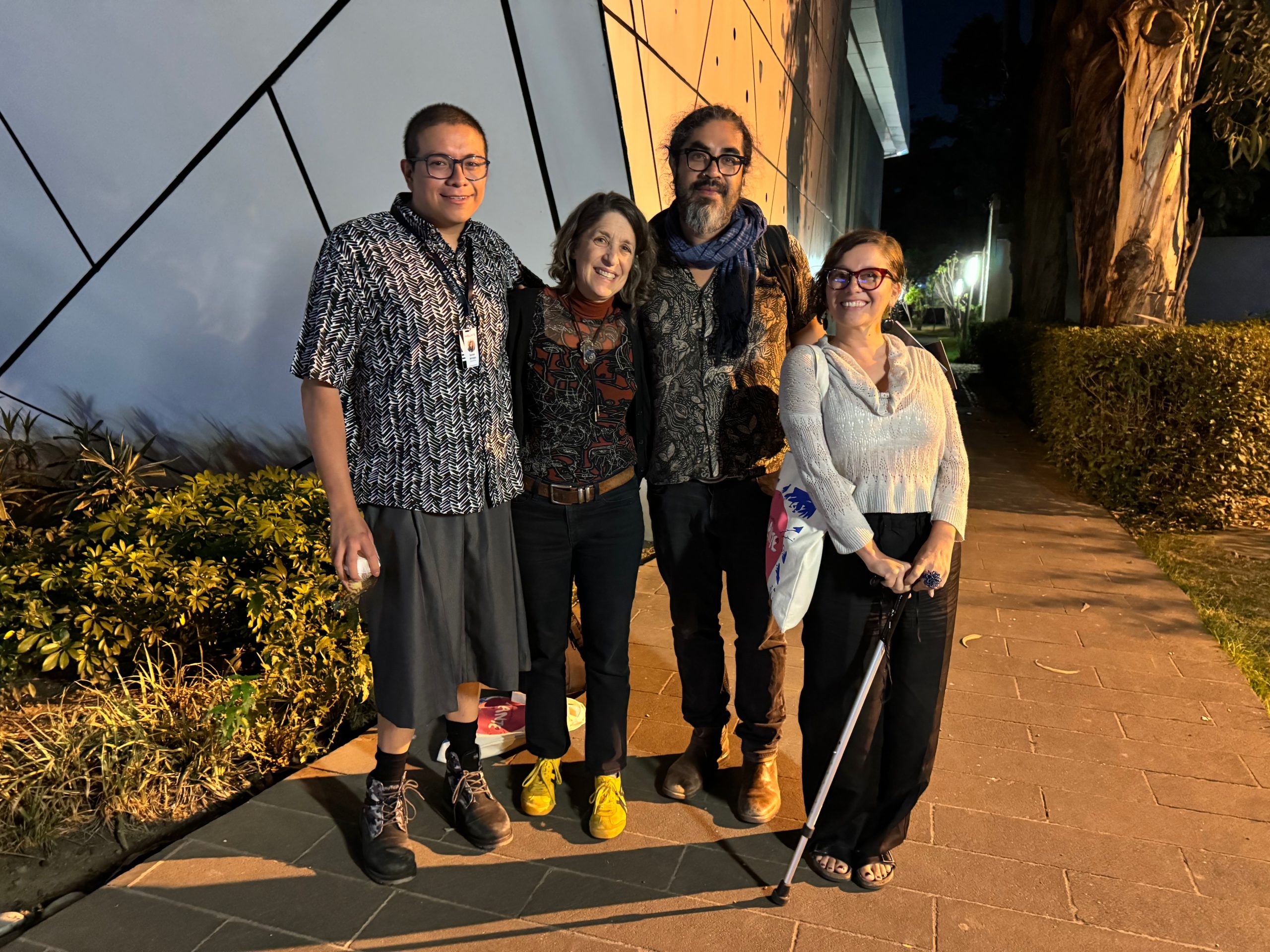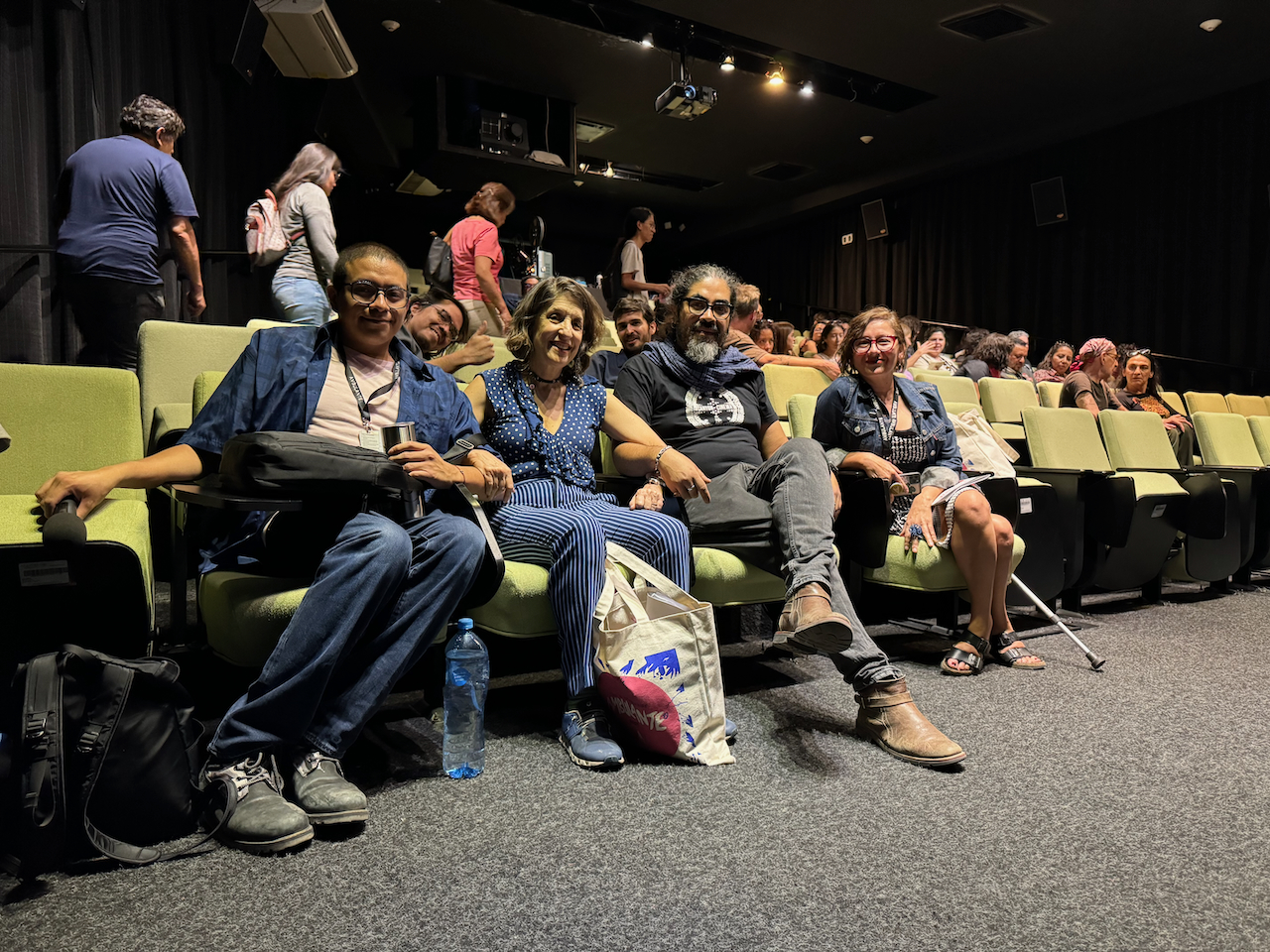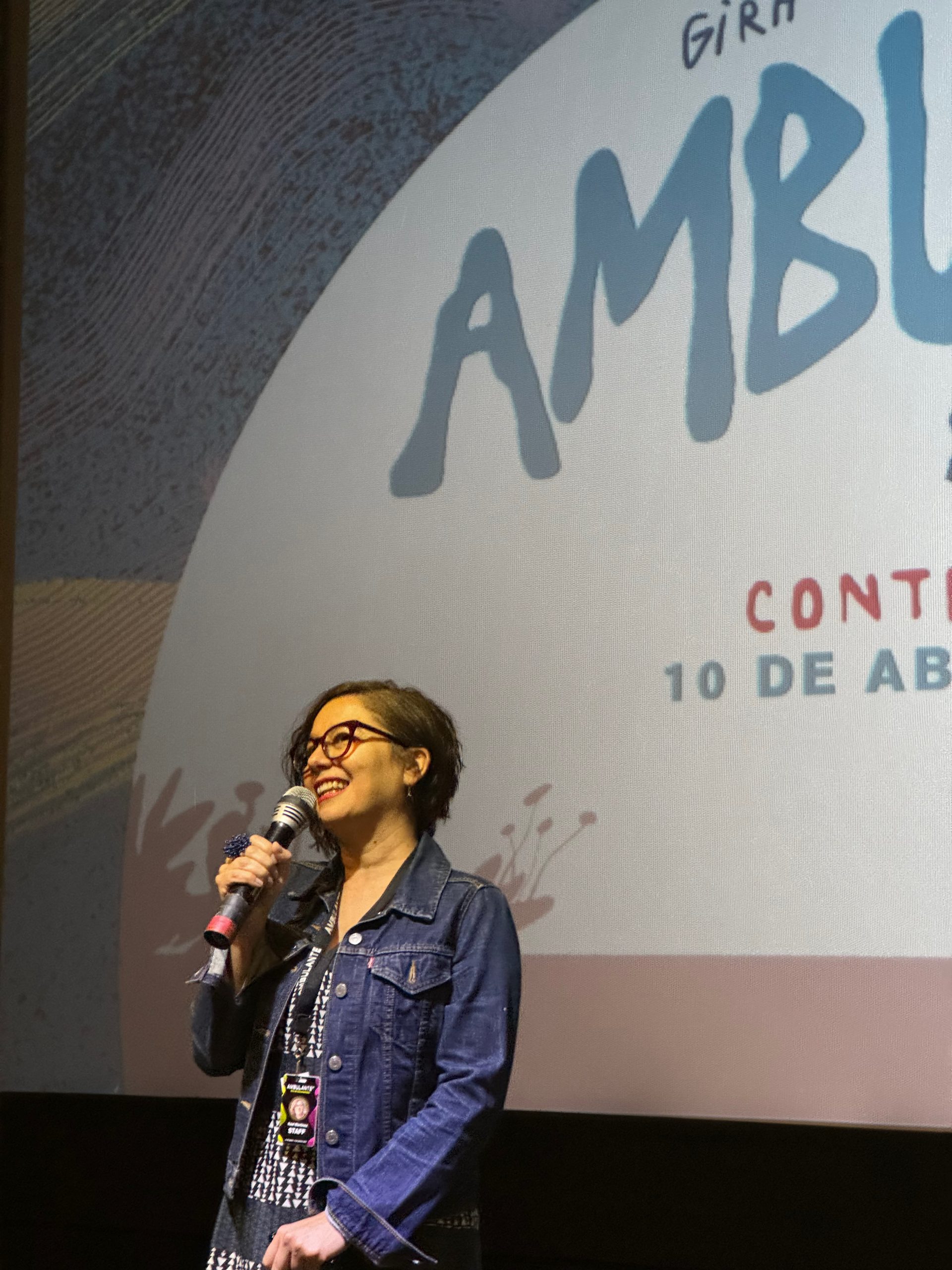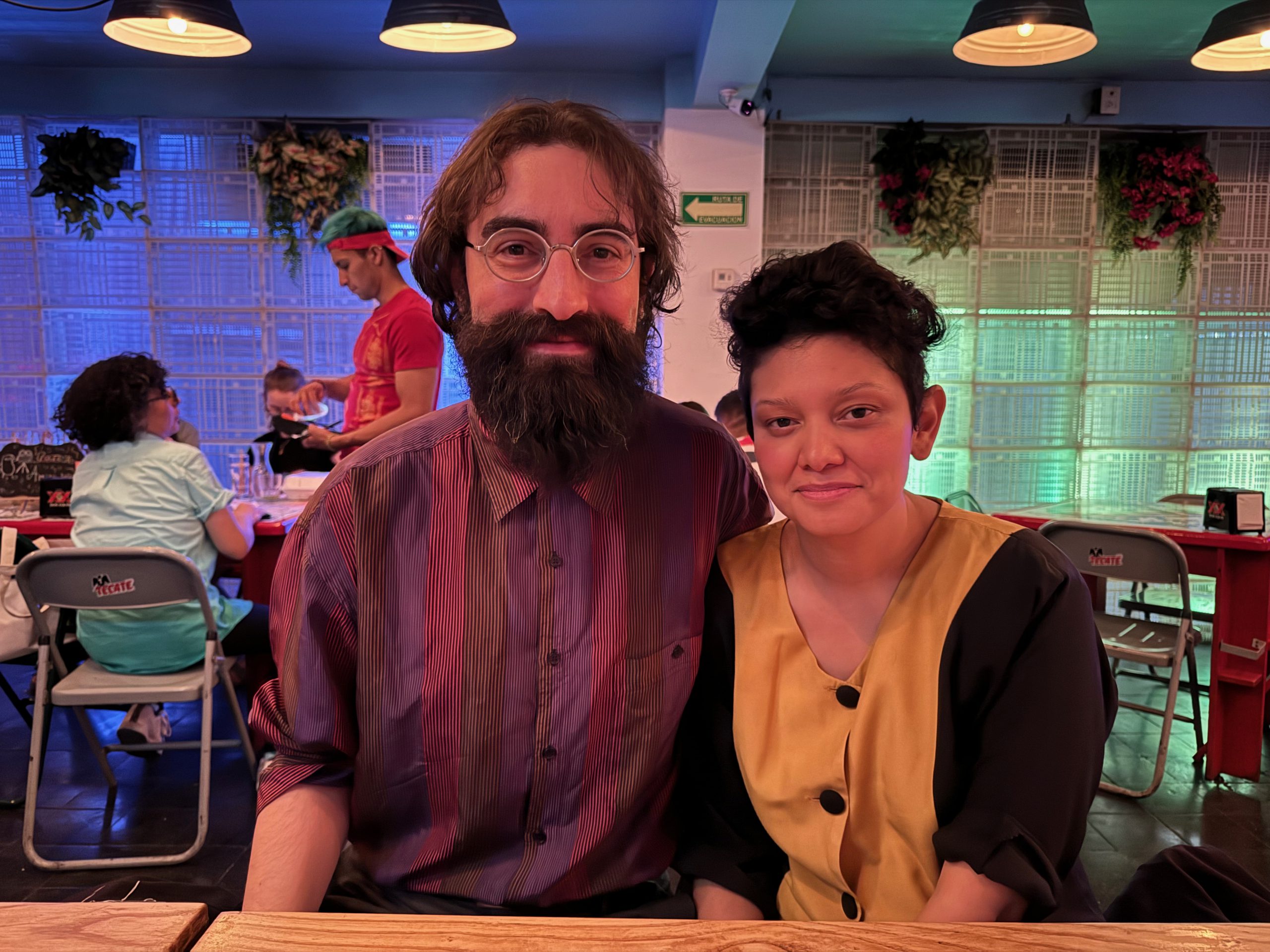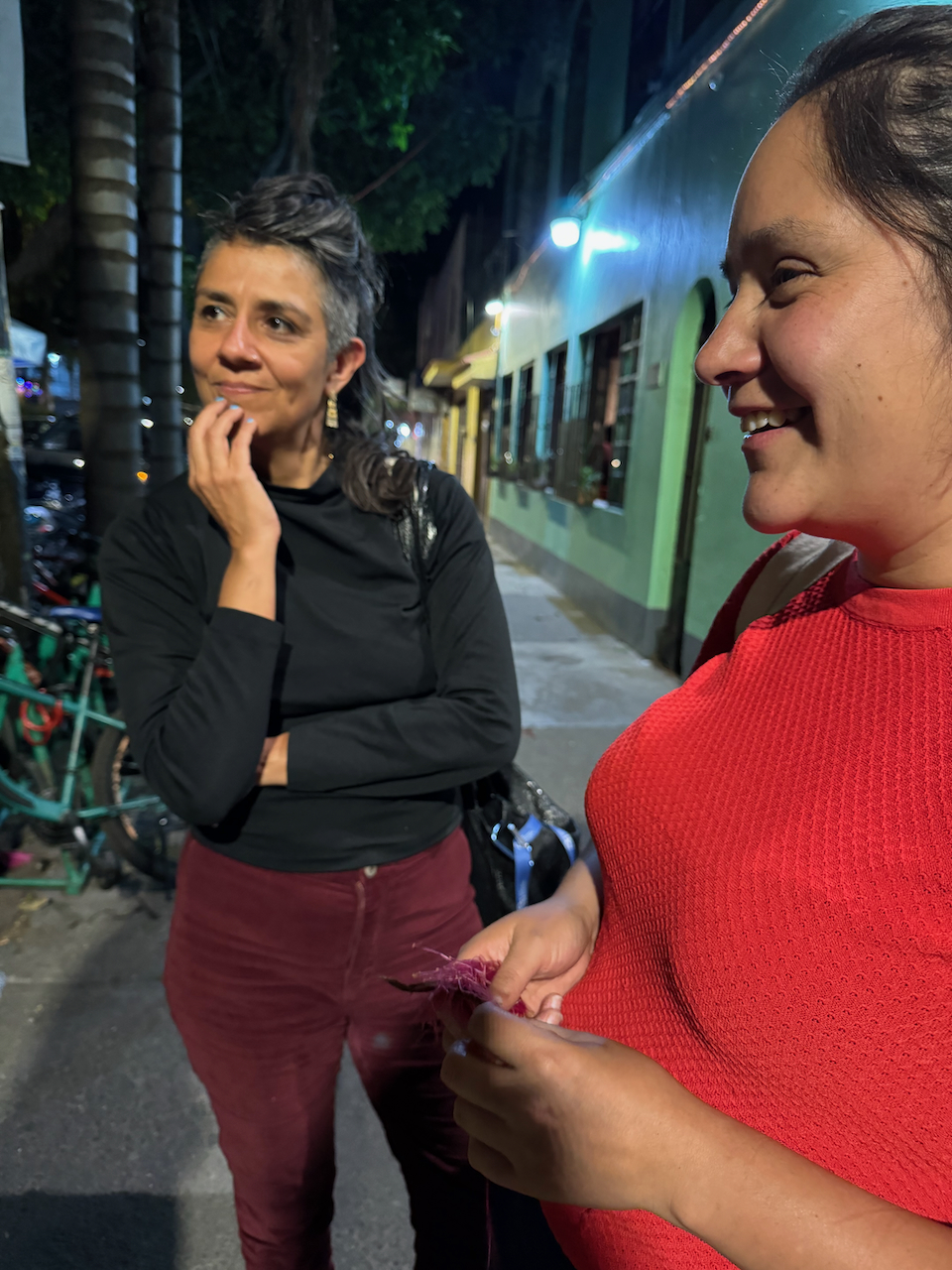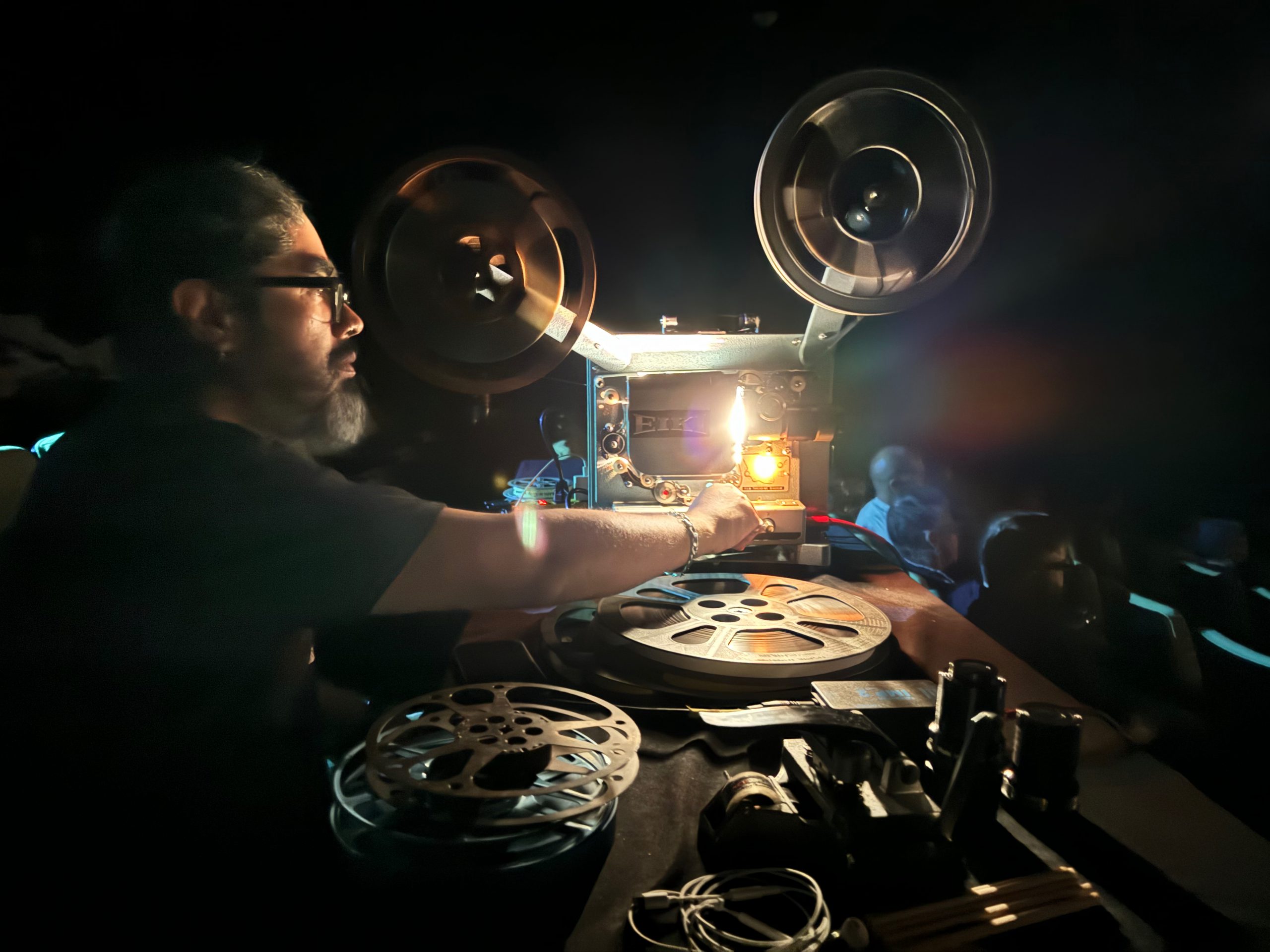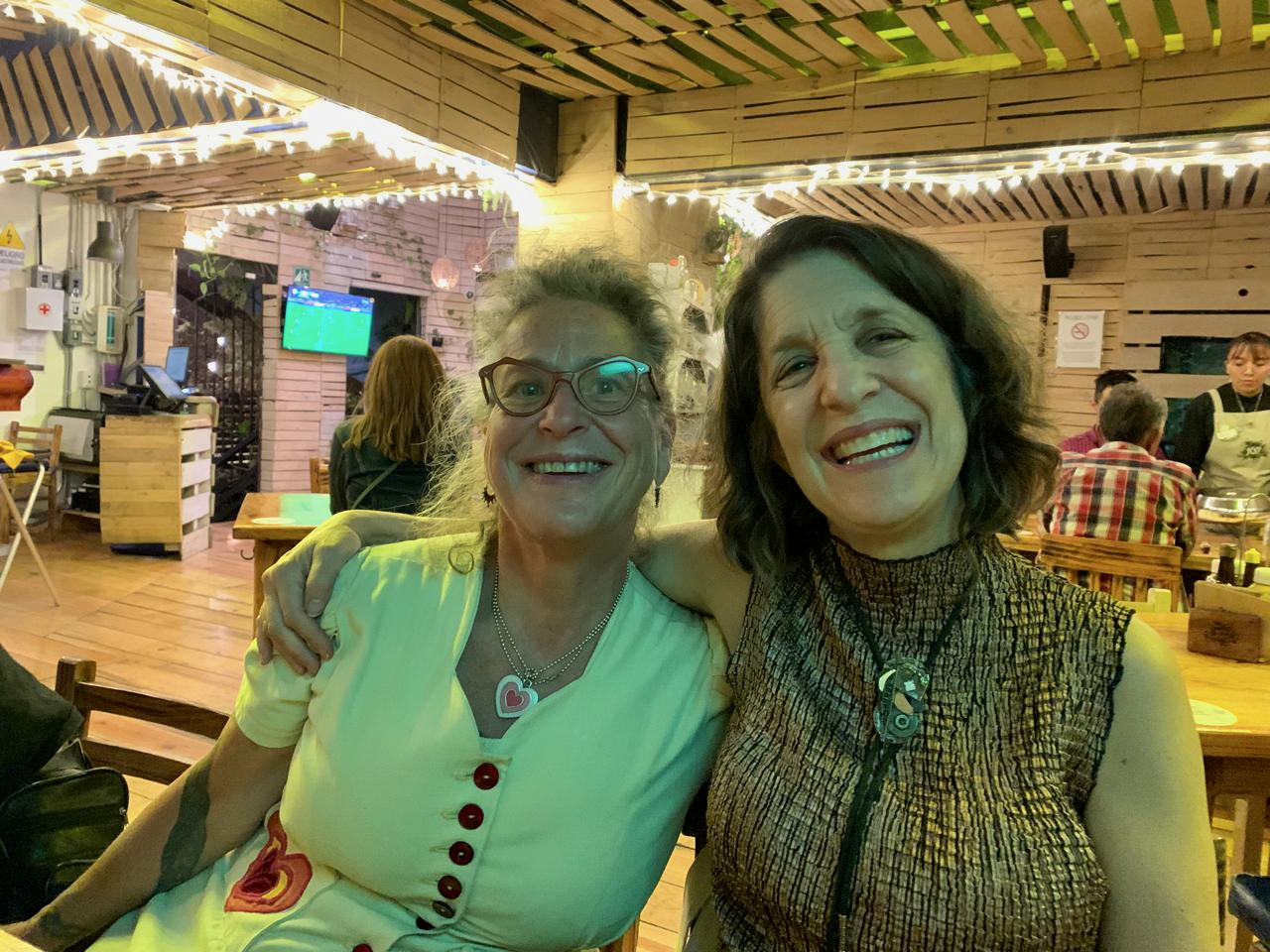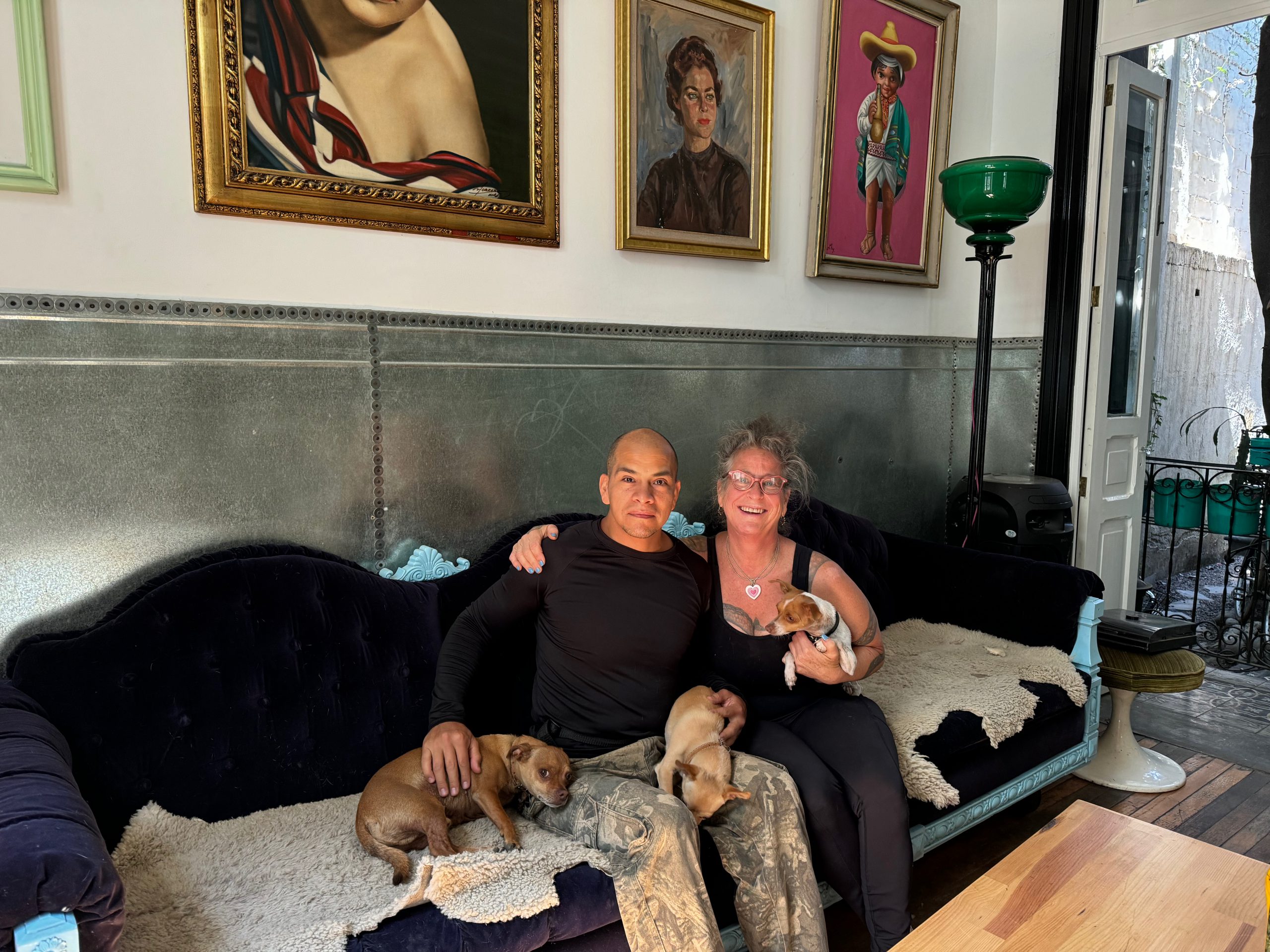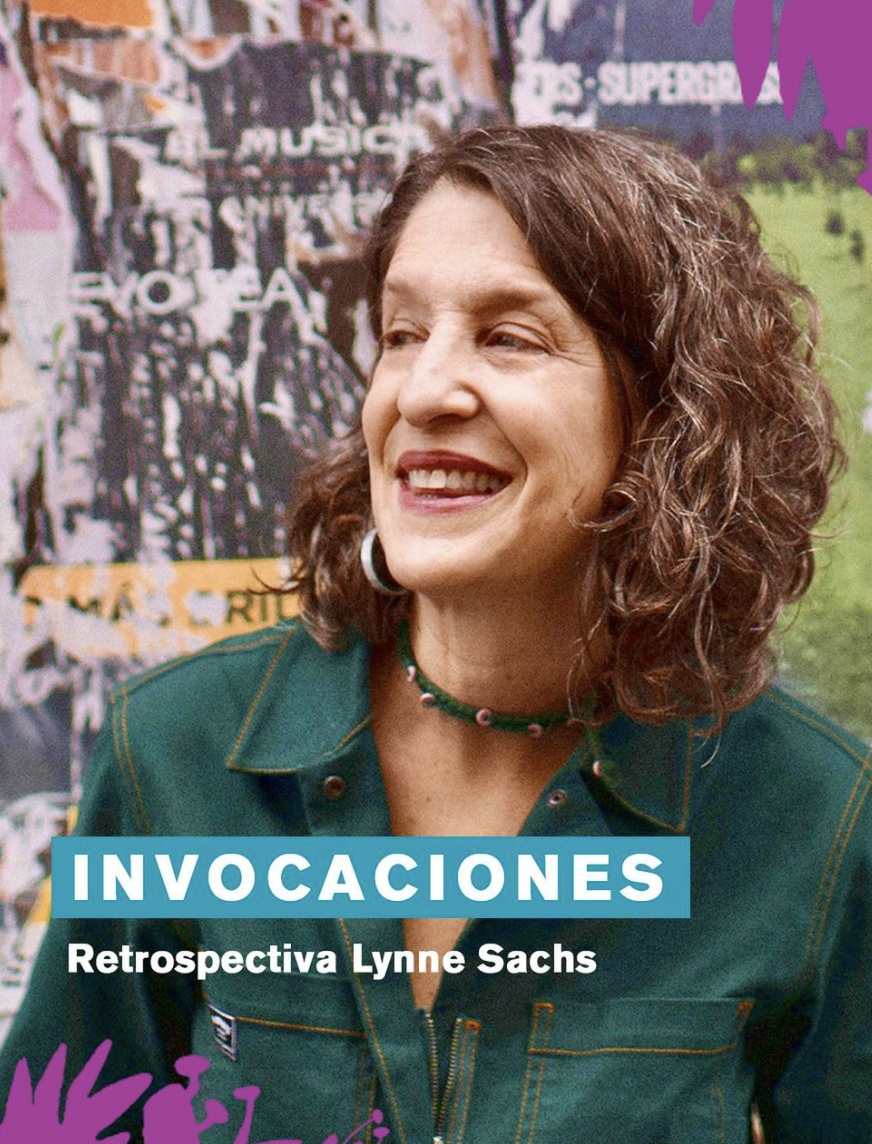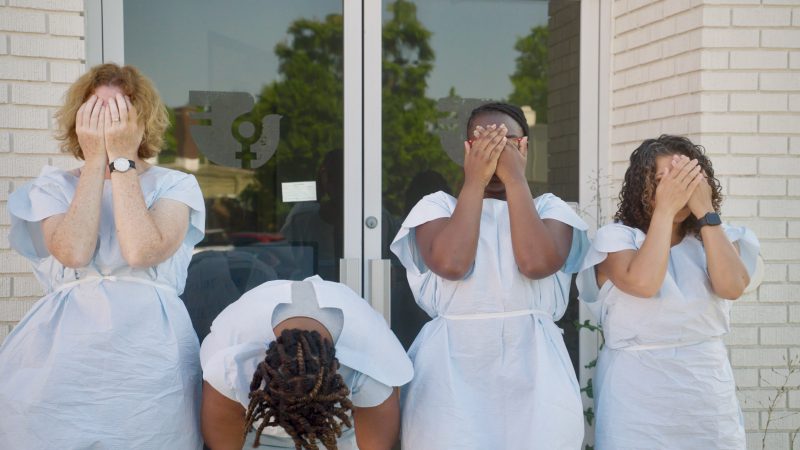
Jordan Raup | May 6, 2024
2024 marks 40 years since experimental filmmaker Lynne Sachs took her first video class at DCTV, and in celebration, DCTV’s Firehouse Cinema in NYC will be presenting an extensive retrospective. Taking place June 7-11, the series features 24 of her films plus a sound-collage world premiere associated with her latest film, Contractions, which was a selection at True/False, Prismatic Ground, and DC/DOX 2024). The upcoming New York Times Op-Docs release, which takes us to Memphis, Tennessee where we contemplate the discontinuation of abortion services at a women’s health clinic, will premiere at the NYT timed to the 2nd anniversary of Roe v Wade being overturned.
Titled Lynne Sachs: From the Outside In, the retrospective traverses Sachs’ documentary films, defiant of traditional genre or style. The program notes continue, “From peering out, collecting others’ experiences and world events, to looking inward, reflecting on familial histories and entanglements, Sachs weaves the political with the personal. Through this seven-program series of screenings and discussions, with Sachs and collaborators in front of and behind the camera, this retrospective celebrates Sachs’ distinctive artistry and groundbreaking career.”
“I’ve been in awe of Lynne’s fearlessness and desire to create, make meaning, rip apart, and piece together. I see her as the epitome of an indelible artist who is driven by curiosity and empathy – not fame, industry demands, or commercial algorithms. And I appreciate her sincere gratitude to her collaborators and to DCTV, honorably looking back but always steps ahead. Good documentary filmmaking cannot happen in a vacuum,” said Dara Messinger, Director of Programming, DCTV’s Firehouse Cinema.
“I walked into Downtown Community TV (DCTV) in 1984 thinking I needed to take some classes on how to make a documentary film,” said Sachs. “I was 22 years old and open to any possibility, any guidance, and totally impressionable. From that moment on, I learned to challenge every conventional expectation about working with reality. It’s an honor to bring these seven programs back to the Firehouse Theater. As I continue to explore the connections between the body, the camera and the materiality of film itself, I reflect on those early experiences that taught me to reflect upon my own relationship to the people, places and events I continue to witness as a filmmaker.”
Founded in 1972, DCTV has grown into one of the leading documentary production and film education centers in the country. A community of and for documentary filmmakers, DCTV is a unique space where screenings, discussions, youth media, continuing education programs, and filmmaking resources exist side by side with award-winning productions.
Check out the schedule below and get tickets starting May 8 here.
Friday, June 7
Program 1: Performing the Real
Eschewing the inherent distance in ethnography and observation, the responsive movement and poetry in this program’s films shine a light on Sachs’ creative impulse to drive collaborative participation and honor the role of catalyst.
Opening Night: Friday, June 7th, 7pm
Q&A with Lynne Sachs and Lizzie Olesker moderated by Sam Green
FOSSIL
1986, 12 min
The village women of Mambai in Bali, Indonesia collect sand and stone from the river. Each woman sells what she has gathered for construction material. But the river is more than a place to work. It is a place to bathe, wash clothes, laugh and tell stories. Fossil is a collaborative performance piece that evolved through discussion and movement exercises in a collective response to Lynne’s images from Mambai.
THE WASHING SOCIETY
Co-Directed with Lizzie Olesker, 2018, 44 min
When you drop off a bag of dirty laundry, who’s doing the washing and folding? The Washing Society brings us into New York City laundromats and the experiences of the people who work there. Sachs and playwright Lizzie Olesker observe the disappearing public space of the neighborhood laundromat and the continual, intimate labor that happens there. Inspired by To ‘Joy My Freedom author Tera Hunter’s depiction of the 1881 organization of African-American laundresses in Atlanta and historian Silvia Federici’s writing on reproductive labor, Sachs and Olesker’s film investigates the intersection of history, underpaid work, immigration, and the sheer math of doing laundry. Dirt, skin, lint, stains, money, and time are thematically interwoven into the very fabric of The Washing Society through interviews and observational moments. With original music by Stephen Vitiello, the film explores the slippery relationship between the real and the re-enacted with layers of dramatic dialogue and gestural choreography. The juxtaposition of narrative and documentary elements in The Washing Society creates a dream-like, yet hyper-real portrayal of a day in the life of a laundry worker, both past and present.
SWERVE
2022, 8 min
A market and playground in Queens, New York, a borough of New York City, becomes the site for the shooting of a film inspired by Paolo Javier’s Original Brown Boy poems. Wearing the tell-tale masks of our daunting now, five New York City performers search for a meal while speaking in verse. The film itself transforms into an ars poetica/cinematica, a meditation on writing and making images in the liminal space between a global pandemic and what might come next.
Saturday, June 8
Program 2: Frames and Stanzas: An Artist Talk and Workshop
Saturday, June 8, 12pm
In this intimate artist talk and workshop, filmmaker and poet Lynne Sachs will share her insights in bridging poetry with cinema. Participants will explore the intersection between moving images and written or spoken words. Lynne will present excerpts from her own films that explore the activation of archival images, visualization of poetic texts, overlaying text on image, expanded cinema performance, oral history, and the film essay. As part of the class experience, participants will explore their creative practice through writing. Films to be screened include: A Biography of Lilith, Starfish Aorta Colossus, Visit to Bernadette Mayer’s Childhood Home.
Program 3: It’s a Hell of a Place
A love letter to New York City – when love can also be critical, baffling, sometimes painful. The films in this program all take place in our metropolis called home.
Saturday, June 8th, 4pm
Q&A with Lynne Sachs moderated by Tom Day, Executive Director of Film-Makers Cooperative
LADIES WEAR
1983, 3 min
Filmed with Sachs’ brother, Ira Sachs, on the New York City subway.
TORNADO
2022, 4 min
A tornado is a spinning cyclone of nature. It stampedes like an angry bull through a tranquil pasture of blue violets and upright blades of grass. A tornado kills with abandon but has no will. Lynne Sachs’ Tornado is a cine-poem shot from the perspective of Brooklyn, where much of the paper and soot from the burning towers fell on September 11th. Sachs’ fingers obsessively handle these signed fragments of resumes, architectural drawings and calendars, normally banal office material that takes on a new, haunting meaning.
YOUR DAY IS MY NIGHT
2013, 63 min
Immigrant residents of a “shift-bed” apartment in the heart of New York City’s Chinatown share their stories of personal and political upheaval. As the bed transforms into a stage, the film reveals the collective history of the Chinese in the United States through conversations, autobiographical monologues, and theatrical movement pieces. Shot in the kitchens, bedrooms, wedding halls, cafés, and mahjong parlors of Chinatown, this provocative hybrid documentary addresses issues of privacy, intimacy, and urban life.
Program 4: Fightless
Violence begets violence, as protest and resistance begets change. In this program, Sachs’ films dissect war, civil disobedience, and the sociopolitical tides from WWII to Vietnam and today.
Saturday, June 8, 7pm
Q&A with Lynne Sachs moderated by Naeem Mohaiemen
THE SMALL ONES
2007, 3 min
During WWII, the US Army Graves Registration Service hired Sachs’ Hungarian cousin, Dr. Sandor Lenard, to reconstruct the bones – small and large – of dead American soldiers. This elliptical work, which resonates as an anti-war meditation, is composed of excerpts of Sandor’s letters to Sachs’ family, highly abstracted war imagery, and home movies of children at a birthday party.
THE TASK OF THE TRANSLATOR
2010, 10 min
Sachs pays homage to Walter Benjamin’s essay “The Task of the Translator,” through three studies of the human body. First, she listens to the musings of a wartime doctor grappling with the task of a kind-of cosmetic surgery for corpses. Second, she witnesses a group of Classics scholars confronted with the haunting yet whimsical task of translating a newspaper article on Iraqi burial rituals into Latin. And finally, she turns to a radio news report on human remains.
E•PIS•TO•LAR•Y: LETTER TO JEAN VIGO
2021, 5 min
In a cinema letter to French director Jean Vigo, Sachs ponders the delicate resonances of his 1933 classic, Zero for Conduct, in which a group of school boys wages an anarchist rebellion against their authoritarian teachers. Thinking about the January 6, 2021 assault on the United States Capitol by thousands of right-wing activists, she wonders how innocent play or calculated protest can so quickly turn into chaos and violence.
INVESTIGATION OF A FLAME
2001, 45 min
On May 17, 1968, nine Vietnam War protesters, including a nurse, an artist and three priests, walked into a Catonsville, Maryland draft board office, grabbed hundreds of selective service records, and burned them with homemade napalm. Investigation of a Flame is an intimate look at this unlikely, disparate band of resistors – the Catonsville Nine, as they came to be known – who broke the law in a poetic act of civil disobedience. The publicity and news coverage from the ensuing trial helped galvanize an increasingly disillusioned American public. Sachs has combined long unseen archival footage with a series of informal interviews with Daniel Berrigan, Philip Berrigan, Howard Zinn, Tom Lewis, and Marjorie and Tom Melville and others to encourage viewers to ponder the relevance of such events today.
Sunday, June 9
2024 marks 40 years since experimental filmmaker Lynne Sachs took her first video class at DCTV, and in celebration, DCTV’s Firehouse Cinema in NYC will be presenting an extensive retrospective. Taking place June 7-11, the series features 24 of her films plus a sound-collage world premiere associated with her latest film, Contractions, which was a selection at True/False, Prismatic Ground, and DC/DOX 2024). The upcoming New York Times Op-Docs release, which takes us to Memphis, Tennessee where we contemplate the discontinuation of abortion services at a women’s health clinic, will premiere at the NYT timed to the 2nd anniversary of Roe v Wade being overturned.
Titled Lynne Sachs: From the Outside In, the retrospective traverses Sachs’ documentary films, defiant of traditional genre or style. The program notes continue, “From peering out, collecting others’ experiences and world events, to looking inward, reflecting on familial histories and entanglements, Sachs weaves the political with the personal. Through this seven-program series of screenings and discussions, with Sachs and collaborators in front of and behind the camera, this retrospective celebrates Sachs’ distinctive artistry and groundbreaking career.”
“I’ve been in awe of Lynne’s fearlessness and desire to create, make meaning, rip apart, and piece together. I see her as the epitome of an indelible artist who is driven by curiosity and empathy – not fame, industry demands, or commercial algorithms. And I appreciate her sincere gratitude to her collaborators and to DCTV, honorably looking back but always steps ahead. Good documentary filmmaking cannot happen in a vacuum,” said Dara Messinger, Director of Programming, DCTV’s Firehouse Cinema.
“I walked into Downtown Community TV (DCTV) in 1984 thinking I needed to take some classes on how to make a documentary film,” said Sachs. “I was 22 years old and open to any possibility, any guidance, and totally impressionable. From that moment on, I learned to challenge every conventional expectation about working with reality. It’s an honor to bring these seven programs back to the Firehouse Theater. As I continue to explore the connections between the body, the camera and the materiality of film itself, I reflect on those early experiences that taught me to reflect upon my own relationship to the people, places and events I continue to witness as a filmmaker.”
Founded in 1972, DCTV has grown into one of the leading documentary production and film education centers in the country. A community of and for documentary filmmakers, DCTV is a unique space where screenings, discussions, youth media, continuing education programs, and filmmaking resources exist side by side with award-winning productions.
Check out the schedule below and get tickets starting May 8 here.
Friday, June 7
Program 1: Performing the Real
Eschewing the inherent distance in ethnography and observation, the responsive movement and poetry in this program’s films shine a light on Sachs’ creative impulse to drive collaborative participation and honor the role of catalyst.
Opening Night: Friday, June 7th, 7pm
Q&A with Lynne Sachs and Lizzie Olesker moderated by Sam Green
FOSSIL
1986, 12 min
The village women of Mambai in Bali, Indonesia collect sand and stone from the river. Each woman sells what she has gathered for construction material. But the river is more than a place to work. It is a place to bathe, wash clothes, laugh and tell stories. Fossil is a collaborative performance piece that evolved through discussion and movement exercises in a collective response to Lynne’s images from Mambai.
THE WASHING SOCIETY
Co-Directed with Lizzie Olesker, 2018, 44 min
When you drop off a bag of dirty laundry, who’s doing the washing and folding? The Washing Society brings us into New York City laundromats and the experiences of the people who work there. Sachs and playwright Lizzie Olesker observe the disappearing public space of the neighborhood laundromat and the continual, intimate labor that happens there. Inspired by To ‘Joy My Freedom author Tera Hunter’s depiction of the 1881 organization of African-American laundresses in Atlanta and historian Silvia Federici’s writing on reproductive labor, Sachs and Olesker’s film investigates the intersection of history, underpaid work, immigration, and the sheer math of doing laundry. Dirt, skin, lint, stains, money, and time are thematically interwoven into the very fabric of The Washing Society through interviews and observational moments. With original music by Stephen Vitiello, the film explores the slippery relationship between the real and the re-enacted with layers of dramatic dialogue and gestural choreography. The juxtaposition of narrative and documentary elements in The Washing Society creates a dream-like, yet hyper-real portrayal of a day in the life of a laundry worker, both past and present.
SWERVE
2022, 8 min
A market and playground in Queens, New York, a borough of New York City, becomes the site for the shooting of a film inspired by Paolo Javier’s Original Brown Boy poems. Wearing the tell-tale masks of our daunting now, five New York City performers search for a meal while speaking in verse. The film itself transforms into an ars poetica/cinematica, a meditation on writing and making images in the liminal space between a global pandemic and what might come next.
Saturday, June 8
Program 2: Frames and Stanzas: An Artist Talk and Workshop
Saturday, June 8, 12pm
In this intimate artist talk and workshop, filmmaker and poet Lynne Sachs will share her insights in bridging poetry with cinema. Participants will explore the intersection between moving images and written or spoken words. Lynne will present excerpts from her own films that explore the activation of archival images, visualization of poetic texts, overlaying text on image, expanded cinema performance, oral history, and the film essay. As part of the class experience, participants will explore their creative practice through writing. Films to be screened include: A Biography of Lilith, Starfish Aorta Colossus, Visit to Bernadette Mayer’s Childhood Home.
Program 3: It’s a Hell of a Place
A love letter to New York City – when love can also be critical, baffling, sometimes painful. The films in this program all take place in our metropolis called home.
Saturday, June 8th, 4pm
Q&A with Lynne Sachs moderated by Tom Day, Executive Director of Film-Makers Cooperative
LADIES WEAR
1983, 3 min
Filmed with Sachs’ brother, Ira Sachs, on the New York City subway.
TORNADO
2022, 4 min
A tornado is a spinning cyclone of nature. It stampedes like an angry bull through a tranquil pasture of blue violets and upright blades of grass. A tornado kills with abandon but has no will. Lynne Sachs’ Tornado is a cine-poem shot from the perspective of Brooklyn, where much of the paper and soot from the burning towers fell on September 11th. Sachs’ fingers obsessively handle these signed fragments of resumes, architectural drawings and calendars, normally banal office material that takes on a new, haunting meaning.
YOUR DAY IS MY NIGHT
2013, 63 min
Immigrant residents of a “shift-bed” apartment in the heart of New York City’s Chinatown share their stories of personal and political upheaval. As the bed transforms into a stage, the film reveals the collective history of the Chinese in the United States through conversations, autobiographical monologues, and theatrical movement pieces. Shot in the kitchens, bedrooms, wedding halls, cafés, and mahjong parlors of Chinatown, this provocative hybrid documentary addresses issues of privacy, intimacy, and urban life.
Program 4: Fightless
Violence begets violence, as protest and resistance begets change. In this program, Sachs’ films dissect war, civil disobedience, and the sociopolitical tides from WWII to Vietnam and today.
Saturday, June 8, 7pm
Q&A with Lynne Sachs moderated by Naeem Mohaiemen
THE SMALL ONES
2007, 3 min
During WWII, the US Army Graves Registration Service hired Sachs’ Hungarian cousin, Dr. Sandor Lenard, to reconstruct the bones – small and large – of dead American soldiers. This elliptical work, which resonates as an anti-war meditation, is composed of excerpts of Sandor’s letters to Sachs’ family, highly abstracted war imagery, and home movies of children at a birthday party.
THE TASK OF THE TRANSLATOR
2010, 10 min
Sachs pays homage to Walter Benjamin’s essay “The Task of the Translator,” through three studies of the human body. First, she listens to the musings of a wartime doctor grappling with the task of a kind-of cosmetic surgery for corpses. Second, she witnesses a group of Classics scholars confronted with the haunting yet whimsical task of translating a newspaper article on Iraqi burial rituals into Latin. And finally, she turns to a radio news report on human remains.
E•PIS•TO•LAR•Y: LETTER TO JEAN VIGO
2021, 5 min
In a cinema letter to French director Jean Vigo, Sachs ponders the delicate resonances of his 1933 classic, Zero for Conduct, in which a group of school boys wages an anarchist rebellion against their authoritarian teachers. Thinking about the January 6, 2021 assault on the United States Capitol by thousands of right-wing activists, she wonders how innocent play or calculated protest can so quickly turn into chaos and violence.
INVESTIGATION OF A FLAME
2001, 45 min
On May 17, 1968, nine Vietnam War protesters, including a nurse, an artist and three priests, walked into a Catonsville, Maryland draft board office, grabbed hundreds of selective service records, and burned them with homemade napalm. Investigation of a Flame is an intimate look at this unlikely, disparate band of resistors – the Catonsville Nine, as they came to be known – who broke the law in a poetic act of civil disobedience. The publicity and news coverage from the ensuing trial helped galvanize an increasingly disillusioned American public. Sachs has combined long unseen archival footage with a series of informal interviews with Daniel Berrigan, Philip Berrigan, Howard Zinn, Tom Lewis, and Marjorie and Tom Melville and others to encourage viewers to ponder the relevance of such events today.
Sunday, June 9
Program 5: Bodies and Bonds
Heavy with chains that bind, this program of films magnifies Sachs’ feminist gaze through her personal diaries, family portraits, and women’s testimonies.
Sunday, June 9, 2pm
Q&A with Lynne Sachs + Dara Messinger
DRAWN AND QUARTERED
1987, 4 min
A male form and a female form exist in their own private domains, separated by a barrier. Only for a moment does the one intrude upon the pictorial space of the other. An experiment in form/content relationships that are peculiar to the medium.
THE HOUSE OF SCIENCE
1991, 30 min
A defiant feminist mosaic on the ways that science enters our culture and defines what it is to be a woman. At age 30, Lynne Sachs wondered why so much about our culture simply made her feel bad about her body. She wrote in her diary, shot film with her friends and collected archival footage from educational films on menstruation and childbirth. By giving new meaning to the “body of the body” and the “body of the mind,” she works to dismantle those stereotypes of women rooted in Western patriarchy.
AND THEN WE MARCHED
2017, 4 min
Sachs shoots Super 8mm film of the Women’s March in Washington, D.C. and intercuts this recent footage with archival material of early 20th Century Suffragists marching for the right to vote,1960s antiwar activists and 1970s advocates for the Equal Rights Amendment. She then talks about the experience of marching with her seven-year old neighbor who offers disarmingly insightful observations on the meaning of their shared actions.
A YEAR IN NOTES AND NUMBERS
2017, 4 min
A year’s worth of Lynne’s to-do lists forces her to confront the unavoidable numbers that are part and parcel of an annual visit to the doctor. The quotidian and the corporeal mingle and mix. Family commitments, errands and artistic effusions trade places with the daunting reality of sugar, cholesterol, and bone.
CAROLEE, BARBARA & GUNVOR
2018, 9 min
From 2015 to 2017, Lynne visited with Carolee Schneemann, Barbara Hammer and Gunvor Nelson, three multi-faceted artists and dear friends who had embraced the moving image throughout their lives. From Carolee’s 18th Century house in the woods of Upstate New York to Barbara’s West Village studio to Gunvor’s childhood village in Sweden, she shoots film with each woman in the place where she finds grounding and spark.
MAYA AT 24
2021, 4 min
Lynne films her daughter Maya in 16mm black and white film, at ages 6, 16 and 24. At each iteration, Maya runs around her mother, in a circle, clockwise, as if propelling herself in the same direction as time, forward, on celluloid at 24 frames per second. Conscious of the strange simultaneous temporal landscape that only film can convey, we watch Maya in motion at each distinct age
CONTRACTIONS
2024, 12 min
In 2022, the Supreme Court of the United States ended a woman’s right to a safe and legal abortion. This film takes us to Memphis, Tennessee where we contemplate the discontinuation of abortion services at a women’s health clinic. We listen to an obstetrician-gynecologist and a reproductive justice activist. We watch 14 women who witness and perform with their backs to the camera. In a place where a woman can no longer make decisions about her own body, they speak with the full force of their collective presence. A New York Times: Op-Docs release.
WE CONTINUE TO SPEAK
2024, 4 min. 33 Sec., sound collage
Sachs records the participants in her film Contractions as they vocalize their reactions to the reduction of women’s bodily autonomy in the US. World Premiere.
Monday, June 10
Program 6: Tip of My Tongue + A Month of Single Frames
Monday, June 10, 7pm
Q&A with Lynne Sachs and Accra Shepp (photographer, member of cast) moderated by Tabitha Jackson
A MONTH OF SINGLE FRAMES
2019, 14 min
In 1998, filmmaker Barbara Hammer had a one-month artist residency in the C-Scape Dune Shack which is run by the Provincetown Community Compact in Cape Cod, Massachusetts. The shack had no running water or electricity. While there, she shot 16mm film with her Beaulieu camera, recorded sounds with her cassette recorder, and kept a journal. In 2018, Barbara began her own process of dying by revisiting her personal archive. She gave all of her dune shack images, sounds and writing to Sachs and invited her to make a film with the material.
TIP OF MY TONGUE
2017, 83 min
To celebrate her 50th birthday, Lynne gathers together other people, men and women who have lived through precisely the same years but come from places, like Iran or Cuba or Australia or the Lower East Side, not Memphis, Tennessee where Sachs grew up. She invites 12 fellow New Yorkers to spend a weekend with her making a movie. Together, they discuss some of the most salient, strange and revealing moments of their lives in a brash, self-reflexive examination of the way in which uncontrollable events outside our own domestic universe impact who we are. They move from the Vietnam War protests to the Anita Hill hearings to the Columbine Shootings to Occupy Wall Street as the film becomes an activator in the resurrection of complex, sometimes paradoxical reflections. Traditional timelines are replaced by a multi-layered, cinematic architecture that both speaks to and visualizes the nature of historical expression.
Tuesday, June 11
Program 7: Film About a Father Who + The Jitters
Closing Night: Tuesday, June 11, 7pm
Q&A with Lynne Sachs and Ira Sachs
THE JITTERS
2024, 3 min
In 2023, the University of Indiana commissioned Sachs and 16 other filmmakers to make a film to celebrate the first “Century of 16mm.” Lynne decided to create a film that reflected who she was at this moment in her life. The Jitters becomes a performance with her partner Mark Street (also one of the commissioned artists), celebrating who they are independently and together … along with their three pet frogs.
FILM ABOUT A FATHER WHO
2020, 74 min
Over a period of 35 years between 1984 and 2019, Sachs shot 8 and 16mm film, videotape and digital images of her father, Ira Sachs Sr., a bon vivant and pioneering businessman from Park City, Utah. Film About a Father Who is her attempt to understand the web that connects a child to her parent and a sister to her siblings. With a nod to the Cubist renderings of a face, Sachs’ cinematic exploration of her father offers simultaneous, sometimes contradictory, views of one seemingly unknowable man who is publicly the uninhibited center of the frame yet privately ensconced in secrets. In the process, Sachs allows herself and her audience inside to see beyond the surface of the skin, the projected reality. As the startling facts mount, Sachs as a daughter discovers more about her father than she had ever hoped to reveal. A Cinema Guild release.

